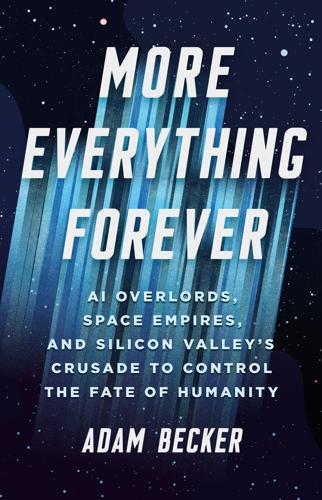
More Everything Forever: AI Overlords, Space Empires, and Silicon Valley's Crusade to Control the Fate of Humanity
by
Adam Becker
Published 14 Jun 2025
They also claim it’s based on sound science, that this is just the future as revealed by a close study of technology and its development. These claims are, at best, deeply questionable. But the tech billionaires and the groups they fund seem to earnestly believe them, despite the evidence against such ideas. That’s not a huge surprise—these futures are deeply seductive. They offer the promise of something that even billions of dollars can’t buy: transcendence of all limits, even of mortality itself. And in the meantime, before the promised future arrives, its pursuit offers absolution. The credence that tech billionaires give to these specific science-fictional futures validates their pursuit of more—to portray the growth of their businesses as a moral imperative, to reduce the complex problems of the world to simple questions of technology, to justify nearly any action they might want to take—all in the name of saving humanity from a threat that doesn’t exist, aiming at a utopia that will never come.
…
It’s a convenient idea: permission to use as much energy as your companies need, regardless of the ecological impact, in service of a higher cause that’s always just over the horizon. Meanwhile, other tech billionaires are working to build an intellectual movement to underpin this notion of growth at all costs. “One of the most important facts in the world and the history of civilization to date is that the rate of progress has not been constant,” said tech billionaire Patrick Collison in 2019. “How does progress happen, how do we discover useful knowledge, how is that diffused, and how can we do it better?… There is a moral imperative to this kind of progress, and we shouldn’t lose sight of that fact.”19 Collison founded the payment processing company Stripe with his brother John in 2010; he is among the youngest billionaires in the world, with a net worth estimated at $7.2 billion.
…
He just sees the perspective of comfortably well-off white men, who certainly had a lock on power in the United States throughout that period (and well before). Similarly, when the tech billionaires and their hangers-on look at the idea of colonialism, they don’t see genocide and exploitation. They see a frontier where they can escape regulation, along with any other consequences for their actions here on Earth. * * * Apparently, expecting tech billionaires like Musk, Bezos, and Andreessen to pay attention to facts and make reasoned arguments for their beliefs is asking too much of them. Andreessen’s manifesto certainly isn’t running on logic—it’s running on pure vibes.
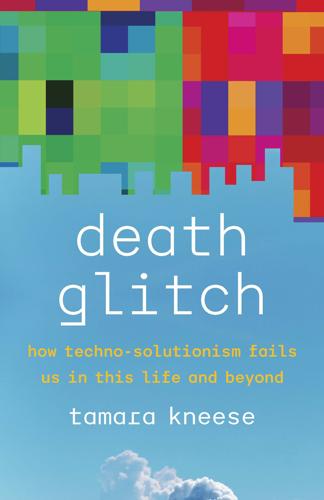
Death Glitch: How Techno-Solutionism Fails Us in This Life and Beyond
by
Tamara Kneese
Published 14 Aug 2023
Stanford, Calif.: Stanford University Press, 2009. Friend, Tad. “Silicon Valley’s Quest to Live Forever.” New Yorker, March 27, 2017. www.newyorker.com/magazine/2017/04/03/silicon-valleys-quest-to-live-forever. Gain, Vish. “The Tech Billionaires Who Doubled Their Wealth During the Pandemic.” Silicon Republic, January 17, 2022. www.siliconrepublic.com/business/tech-billionaires-pandemic-net-worth. Gál, Réka Patrícia. “Climate Change, COVID, and the Space Cabin.” Climate Imaginary Reader, October 2020. mezosfera.org/climate-change-covid-19-and-the-space-cabin-a-politics-of-care-in-the-shadow-of-space-colonization.
…
Despite the fantasy of labor reduction, smart homes require new forms of both manual and digital housekeeping, which maps onto gendered expectations.19 Technology sometimes fails, which frustrates nonexperts more than those who enjoy tinkering and can increase the digital housekeeping labor of those who must work around machine settings or learn to fix appliances that stop working altogether.20 Automation is largely a myth that obscures power relations. Unsurprisingly, the homes of tech billionaires are the ground zero of smart home imaginaries. In building his own dream house, Bill Gates privileged nostalgic pleasures and natural materials, not just gadgets. His designs enforced strict binaries between servant and master, work and leisure, virtual and social; the reinforcement of such hierarchies is a source of comfort to those in power.
…
The project was funded by the conservative Templeton Foundation, which seeks to understand connections between religious cosmology and technology. I went along for the ride, invited to present a spiel on digital estate planning from a cultural and historical perspective. But academics and journalists were not the main attractions. Rather, this private event was littered with tech billionaires for whom digital immortality is a more practical than theoretical consideration. The point was to network.42 West Coast money and power have a distinctive flavor. Some of the futurists in the room hailed from the Institute for the Future and the Long Now Foundation, Silicon Valley hubs for pondering humanity’s long-term relationship with technology.
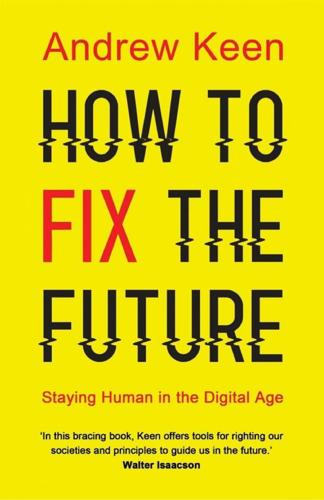
How to Fix the Future: Staying Human in the Digital Age
by
Andrew Keen
Published 1 Mar 2018
Today, the network effect of a mostly unregulated market has created tech companies of such astonishing power and wealth that they have become what the Oxford University historian Timothy Garton Ash calls “private superpowers.”3 Today we are all living under the big data spotlight of a surveillance economy in which we are incessantly watched by these corporate behemoths. Today we have returned to Polanyi’s world of Two Nations, with America’s nine richest tech billionaires being collectively wealthier than 1.8 billion of the world’s poorest people. Today we have such an infestation of violent content in our digital media that it seems almost normal for online audiences of millions to watch revenge porn, live beheadings, and suicides. Today we have become so addicted to our networked devices that the eight-second average attention span of a human being is now shorter than that of a goldfish.4 So the theme of Jaan Tallinn’s talk at the Tehnopol—the idea of treachery—remains extremely pertinent.
…
If they were a country, this would rank them as the seventh-largest economy in the world, a couple of hundred billion dollars ahead of the annual GDP of India, with its more than 1.2 billion inhabitants.36 The personal wealth of the founders of these companies is equally astounding. The nine richest tech billionaires in Silicon Valley have a collective wealth that is more than that of 1.8 billion of the world’s poorest people, a quarter of the world’s entire population. “It is obscene for so much wealth to be held in the hands of so few when one in ten people survive[s] on less than two dollars a day,” noted Oxfam’s executive director, referring to the surreal chasm between a handful of Silicon Valley entrepreneurs and the rest of the world.37 This obscenity has a more local context too.
…
Then there’s Tim Cook, the Apple CEO, whom we last met in Margrethe Vestager’s Brussels office, trying to convince the EU commissioner that the 0.005 percent tax his company paid to the Irish government was somehow in the public interest. Yet that’s the same Tim Cook who has been outspoken in his defense of immigration and minority rights and in his critique of the corrosive impact of fake news on our political culture. Yes, it’s complicated. As the Financial Times’ John Thornhill notes, today’s tech billionaires “have publicly stated ambitions way beyond making money and are extending their reach into areas such as transport, health and education.”11 For all their all-too-human shortcomings, Cook, Benioff, and Bezos are exceptionally smart and, in some ways, responsible people, who, with Bill Gates and a handful of other tech tycoons, are emerging as the philanthropic Carnegies, Stanfords, Rockefellers, Vanderbilts, and Fords of the early twenty-first century.

Survival of the Richest: Escape Fantasies of the Tech Billionaires
by
Douglas Rushkoff
Published 7 Sep 2022
Survival of the Richest ESCAPE FANTASIES OF THE TECH BILLIONAIRES DOUGLAS RUSHKOFF For Mark Filippi, Michael Nesmith, and Genesis Breyer P-Orridge. Wish you were here. Contents Introduction: Meet The Mindset 1 The Insulation Equation BILLIONAIRE BUNKER STRATEGIES 2 Mergers and Acquisitions ALWAYS HAVE AN EXIT STRATEGY 3 A Womb with a View YOU ARE SAFE IN YOUR TECHNO-BUBBLE 4 The Dumbwaiter Effect OUT OF SIGHT, OUT OF MIND 5 Selfish Genes SCIENTISM OVER MORALITY 6 Pedal to the Metal DEHUMANIZE, DOMINATE, AND EXTRACT 7 Exponential WHEN YOU CAN GO NO FURTHER, GO META 8 Persuasive Tech IF YOU COULD JUST PUSH A BUTTON 9 Visions from Burning Man WE ARE AS GODS 10 The Great Reset TO SAVE THE WORLD, SAVE CAPITALISM 11 The Mindset in the Mirror RESISTANCE IS FUTILE 12 Cybernetic Karma HOISTED BY THEIR OWN PETARD 13 Pattern Recognition EVERYTHING COMES BACK Acknowledgments Notes Survival of the Richest INTRODUCTION Meet The Mindset I got invited to a super-deluxe resort to deliver a speech to what I assumed would be a hundred or so investment bankers.
…
It’s always the humans who are reduced to a few lines of code, and the artificial intelligences who learn to make more complex and willful choices. The mental gymnastics required for such a profound role reversal between humans and machines all depend on the underlying assumption that most humans are essentially worthless and unthinkingly self-destructive. Let’s either change them or get away from them, forever. Thus, we get tech billionaires launching electric cars into space —as if this symbolizes something more than one billionaire’s capacity for corporate promotion. And if a few people do reach escape velocity and somehow survive in a bubble on Mars—despite our inability to maintain such a bubble even here on Earth in either of two multibillion-dollar Biosphere trials —the result would be less a continuation of the human diaspora than a lifeboat for the elite.
…
A big new idea will “disrupt” the status quo, take out the competition, grow the market to its full potential, and then—at the peak—execute its climactic “exit strategy” as a sale or IPO. Beginning, middle, and glorious end. Narratives of triumph, expressed in Return On Investment. The rhetoric of Silicon Valley—whether in the pitch decks of young developers, the talks by TED speakers, or the Joe Rogan interviews with tech billionaires—always bears the same hallmarks as these business plans. Progress. The future. Optimism. Transformation. Winning. But usually these are just euphemisms for conquest, colonization, domination, and extraction. They describe ends-justify-the-means campaigns to change the landscape and achieve a monopoly.
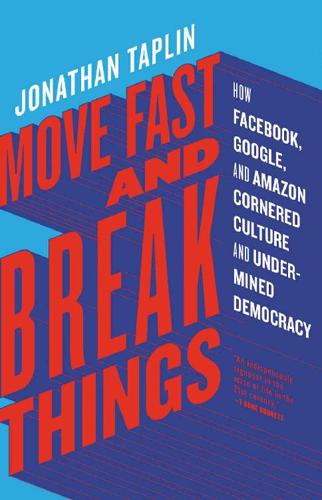
Move Fast and Break Things: How Facebook, Google, and Amazon Cornered Culture and Undermined Democracy
by
Jonathan Taplin
Published 17 Apr 2017
Morgan, has the country faced such a concentration of wealth and power. Peter Orszag and Jason Furman, economic advisers to President Obama, have argued that the fortunes created by the digital revolution may have done more to increase economic inequality than almost any other factor. Despite Marc Andreessen’s and Peter Thiel’s belief that the outsize gains of tech billionaires are the result of a genius entrepreneur culture, inequality at this scale is a choice—the result of the laws and taxes that we as a society choose to establish. Contrary to what techno-determinists want us to believe, inequality is not the inevitable by-product of technology and globalization or even the lopsided distribution of genius.
…
People like Google CEO Larry Page, Facebook’s Mark Zuckerberg, PayPal founder Peter Thiel, and Sean Parker of Napster and Facebook fame are among the richest men in the world, with ambitions so outsize that they are the stuff of fiction: Dave Eggers’s The Circle and Don DeLillo’s Zero K are populated with tech billionaires inventing technology that will enable people to live forever. But this scenario is happening in real life. Peter Thiel, Larry Page, and others are investing hundreds of millions of dollars in research to “end human aging” and to merge human consciousness into their all-powerful networks. As George Packer, writing in the New Yorker, put it, “In Thiel’s techno-utopia a few thousand Americans might own robot-driven cars and live to a hundred and fifty, while millions of others lose their jobs to computers that are far smarter than they are, then perish at sixty.”
…
He wrote, “I’ve become an expert on how to increase economic inequality, and I’ve spent the past decade working hard to do it. Not just by helping the 2500 founders YC has funded. I’ve also written essays encouraging people to increase economic inequality and giving them detailed instructions showing how.” If tech billionaires have achieved political and economic power unseen since the Gilded Age, they have also achieved cultural power. David Nasaw, Andrew Carnegie’s biographer, has said, “Carnegie could never have imagined the kind of power Zuckerberg has. Politics today is less relevant than it has ever been in our entire history.
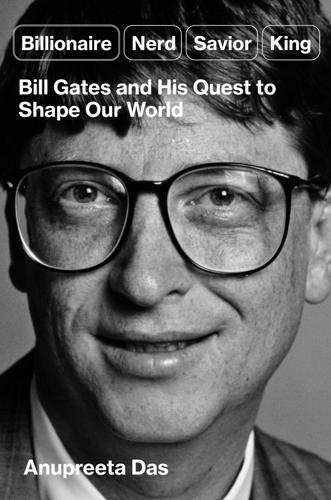
Billionaire, Nerd, Savior, King: Bill Gates and His Quest to Shape Our World
by
Anupreeta Das
Published 12 Aug 2024
Eight of the top 10 billionaires in the Forbes 2023 list of the world’s 400 richest people were tech billionaires—Musk, Bezos, Ellison, Page, Gates, Brin, Zuckerberg, and Steve Ballmer. Each had an estimated net worth of more than $100 billion. Their collective net worth of about $1.2 trillion exceeded the 2021 GDP of the Netherlands. If Bezos were a country, his net worth of $201 billion would rank him at fifty-fourth on the list of countries based on their gross domestic product, coming in just below Iraq but ahead of Ukraine. The divorces of tech billionaires too have created new and enormous fortunes, including those of MacKenzie Scott from Bezos and of Melinda French Gates.
…
People often rationalize fortunes with value creation: A billionaire deserves his or her wealth because the individual created something of value for the wider world, and the wealth is proportional to the value created. But because technological innovations and inventions have prompted so many major cultural shifts and altered our daily lives, we see the people who built tech companies as even more deserving than the wealth that accrues to billionaires in, say, finance. If anything, the immense wealth of tech billionaires, the thinking goes, is dwarfed by the social, economic, and scientific progress they have created. Moreover, wealth creation in technology is seen as not a zero-sum game but an uplift for all members of society. Lauding Billionaire Largesse If the acquisition of money is an American fixation, so is giving it away.
…
The divorces of tech billionaires too have created new and enormous fortunes, including those of MacKenzie Scott from Bezos and of Melinda French Gates. Tech fortunes have eclipsed many of the biggest on Wall Street, including the founders of hedge funds and private equity firms. Also, tech billionaires have accumulated their wealth far more swiftly than billionaires in other industries. The financial dominance and overwhelming importance of the technology sector has conferred upon entrepreneurs and innovators nearly unrestrained power over society, culture, and the public imagination, not to mention our daily lives, feeding into preexisting biases about who is best positioned to lead us into the future.
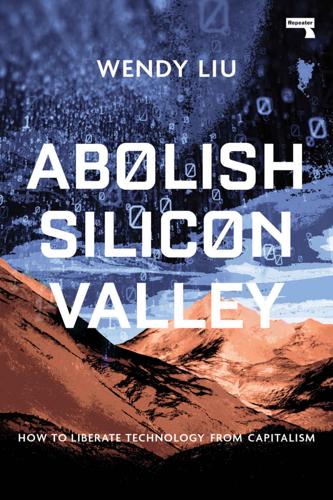
Abolish Silicon Valley: How to Liberate Technology From Capitalism
by
Wendy Liu
Published 22 Mar 2020
I learned about the workplace conditions of the forgotten workers who rarely got to share in the tech industry’s success: the Uber and Lyft drivers making less than minimum wage,6 the Amazon warehouse workers forced to work at a relentless pace,7 the Foxconn workers whose low wages and brutal conditions enabled Apple’s high profit margins.8 Meanwhile, shareholders of all kinds rejoiced because their shares kept going up in value, and the newly minted tech billionaires were lavishly praised for pledging to give their money away9 — even though they were still keeping enough to live opulently, and even though they were only giving to causes that accorded with their personal vision of what the world needed. I had believed that the tech industry was different.
…
They certainly don’t want to admit that their idea of making the world a better place really means better for them.12 What this means is that those who have managed to accumulate resources in the current system are not necessarily the best ones to make decisions about where to allocate them. As much as they would like to believe otherwise, their view is tinged with their own self-interest. To borrow a statement that one tech billionaire has used in a different context: when tech luminaries defend their industry, we should take them seriously, but not literally. Their statements are attempts to make their own truth — marketing, in other words. And we should be doubtful when they tell us they’re providing value, or liquidity, or efficiency, the way we should be of the propaganda that power always generates in an effort to justify its position.
…
Thiel’s affiliation with Y Combinator ended soon after that under unclear circumstances, as reported by Ryan Mac for Buzzfeed News on November 17, 2017: “Y Combinator Cuts Ties With Peter Thiel After Ending Part-Time Partner Program”, at https://www.buzzfeednews.com/article/ryanmac/y-combinator-cuts-ties-with-peter-thiel-ends-part-time. 5 For a brief overview of incidents in this vein, see “The Ugly Unethical Underside of Silicon Valley” by Erin Griffith for Fortune, published December 28, 2016, at https://fortune.com/longform/silicon-valley-startups-fraud-venture-capital/. 6 See, for example, “Uber Drivers Speak Out: We’re Making A Lot Less Money Than Uber Is Telling People” by Maya Kosoff for Business Insider, published October 29, 2014, at https://www.businessinsider.com/uber-drivers-say-theyre-making-less-than-minimum-wage-2014-10. 7 See, for example, “Inside an Amazon Warehouse, the Relentless Need to ‘“Make Rate’”” by Hamilton Nolan for Gawker, published June 6, 2016, at https://gawker.com/inside-an-amazon-warehouse-the-relentless-need-to-mak-1780800336. 8 See, for example, “Foxconn Working Conditions Slammed bBy Workers Rights Group” by Steven Musil for CNET, published May 30, 2012, at https://www.cnet.com/news/foxconn-working-conditions-slammed-by-workers-rights-group/. 9 Several tech billionaires have signed “The Giving Pledge”, a movement led by Bill Gates and Warren Buffet. These billionaires are essentially making a non-binding commitment to give away most of their ill-begotten wealth to philanthropic causes as opposed to, I don’t know, spending it on private jets or burning it or whatever.
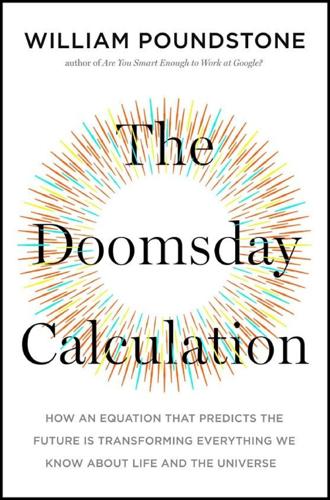
The Doomsday Calculation: How an Equation That Predicts the Future Is Transforming Everything We Know About Life and the Universe
by
William Poundstone
Published 3 Jun 2019
Now 40 years later we have photorealistic 3D simulations with millions playing simultaneously. If you assume any rate of improvement at all, then the games will become indistinguishable from reality. It would seem to follow that the odds that we’re in base reality is 1 in millions.” In 2016 a New Yorker profile of venture capitalist Sam Altman mentioned in passing that “two tech billionaires have gone so far as to secretly engage scientists to work on breaking us out of the simulation.” This promptly led to speculation that one of the billionaires was Musk. Others wondered how it was even possible for simulated beings to break out of their simulation. Journalist Sam Kriss complained that “the tech industry is moving into territory once cordoned off for the occult.”
…
“Slightly revised 2012 December 21, Mayan Long Count Calendar 13.0.0.0.0, or day 1,872,000, end of the 13th b’ak’tun.” arXiv:gr-gc/9407002v2. Kosoff, Maya. “The One Technology That Terrifies Elon Musk.” Vanity Fair, June 2, 2016. Kragh, Helge. “Magic Number: A Partial History of the Fine-Structure Constant.” Archive for History of Exact Sciences 57 (2003): 395–431. Kriss, Sam. “Tech Billionaires Want to Destroy the Universe.” Atlantic, October 13, 2016. Lawton, John H., and Robert McCredie. Extinction Rates. Oxford: Oxford University Press, 1995. Lederman, Leon. The God Particle: If the Universe Is the Answer, What Is the Question? Boston: Houghton Mifflin, 1993. Lee, Jennifer Lauren.
…
“If I were a character in a computer game”: Moskowitz 2016. 4. “effectively zero”: Moskowitz 2016. 5. “The strongest argument for us being in a simulation”: Bilton 2016. This quote has appeared in many places with slight variations. In some accounts Musk puts the chance of being in “base reality” at 1 in billions. 6. “two tech billionaires have gone so far”: Friend 2016. 7. Speculation that Elon Musk was one of the billionaires: Kriss 2016. 8. “the tech industry is moving into territory”: Kriss 2016. 9. “basically a religious belief system”: Bilton 2016. 10. Gosse biography; invented aquarium; corresponded with Darwin: Thwaite 2002.
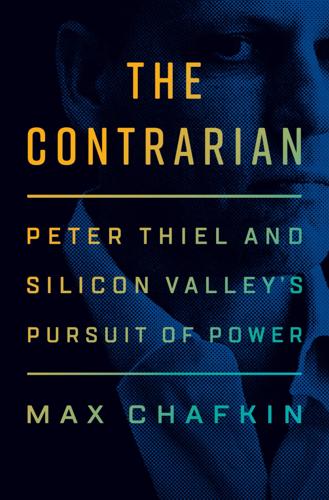
The Contrarian: Peter Thiel and Silicon Valley's Pursuit of Power
by
Max Chafkin
Published 14 Sep 2021
published a blog post: Dan Abrams, “Might a Gawker Hater Be Covering Hulk Hogan’s Legal Bills,” Law & Crime, March 9, 2016, https://lawandcrime.com/high-profile/might-an-anti-gawker-benefactor-be-covering-hulk-hogans-legal-bills/. a public service: Andrew Ross Sorkin, “Peter Thiel, Tech Billionaire, Reveals Secret War with Gawker,” The New York Times, May 25, 2016, https://www.nytimes.com/2016/05/26/business/dealbook/peter-thiel-tech-billionaire-reveals-secret-war-with-gawker.html. bully media outlets: Marina Hyde, “Peter Thiel’s Mission to Destroy Gawker Isn’t ‘Philanthropy.’ It’s a Chilling Taste of Things to Come,” The Guardian, May 27, 2016, https://www.theguardian.com/commentisfree/2016/may/27/peter-thiel-gawker-philanthropy-paypal-mogul-secret-war-billionaire.
…
He also quietly began funding a Super PAC, Endorse Liberty, seeding it with $2.6 million—more, by a huge margin, than Paul had raised from anyone else. “Men and women who want freedom and growth should take action,” Thiel said in a statement in late January 2012 when the filings became public. “A good place to start is voting for Ron Paul.” * * * — paul and those close to him found the idea of a tech billionaire throwing his weight behind their campaign thrilling—and a little perplexing. Paul had no major supporters in the business world—though that was part of the point of his antiestablishment candidacy. Moreover, Thiel’s Super PAC was just odd. It was run not by political types or stalwart libertarian activists, but by a group of political neophytes that included Stephen Oskoui, a Stanford-educated online marketer who was friends with Luke Nosek of Founders Fund, and Jeffrey Harmon, who was known as the guy who’d popularized the Orabrush, a $5 “tongue cleaner” that supposedly combated bad breath.
…
Mostly though, the New York real estate mogul seemed indifferent to his Silicon Valley backer. “Peter is outside the area that Trump admires,” said Bannon. What Trump seemed to care about was Thiel’s money—and the legitimacy it conferred on Trump—as well as about the potential to use Thiel as a conduit to reach other tech billionaires. For his part, Thiel hadn’t instantly appreciated Trump’s value either. After the convention, Thiel enjoyed his boundary-breaking role—he had been the first gay person to talk openly about his sexuality from the stage of the Republican convention—but resisted when Bannon and other members of the campaign attempted to involve him further.
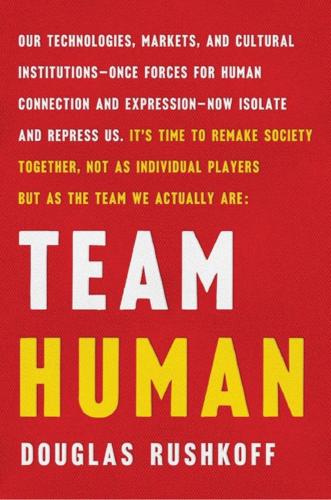
Team Human
by
Douglas Rushkoff
Published 22 Jan 2019
They can repeat tasks, but they can’t analyze or question the systems to which they are contributing. The more that real colleges incorporate the methods of their online competition, the less of this deeper learning they can offer. For these reasons, many of the most ambitious engineers, developers, and entrepreneurs end up dropping out of college altogether. One tech billionaire famously offers $100,000 to twenty young people each year to abandon college in order to pursue their own ideas. The message he’s sending to students is clear: if you want to get somewhere significant, don’t worry about school. When we reduce education to its utilitarian function, it may as well be performed by computers.
…
Progressives, meanwhile, hope that the blockchain will be able to record and reward the unseen value people are creating as they go about their lives—as if all human activity were transactional and capable of being calculated by computer. We must learn that technology’s problems can’t always be solved with more technology. 49. Some of the more farsighted tech billionaires are already investing in plan B. Instead of undoing the damage, reforming their companies, or restoring the social compact, they’re busy preparing for the apocalypse. The CEO of a typical company in 1960 made about 20 times as much as its average worker. Today, CEOs make 271 times the salary of the average worker.
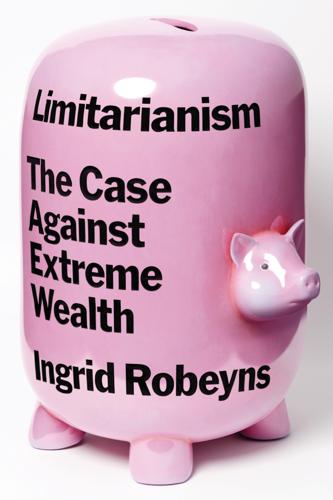
Limitarianism: The Case Against Extreme Wealth
by
Ingrid Robeyns
Published 16 Jan 2024
We are already witnessing tensions between those who feel that the unjust economic settlement should be urgently addressed and those who want to keep things as they are. * * * What all these statistics point to, in the end, is an increasing conflict of interest among different socio-economic groups. We can’t see these conflicts of interest merely by focusing on successful individuals, or by obsessing over the latest big story about some tech billionaire. The statistics reveal what we should really be talking about, something that remains largely absent from public debate: the relationship between money and power, and between different socio-economic groups, and the forces that are driving the ongoing shift in the distribution of wealth. In other words, we need to talk about class.
…
For example, many of the tech companies that have created billionaires—such as Google and Apple—depend for their success on technologies that can be traced back to state support, including, most famously, the internet itself. It is doubtful whether, without governments across countries investing in research with the common good in mind, any of today’s tech billionaires, from Sergey Brin and Larry Page to Bill Gates, would ever have become so wealthy and successful.25 This point has been readily grasped by many of the scientists who have developed medicines and technologies that have benefited humanity hugely. Take the American doctor Jonas Salk, who invented the first vaccine against polio in 1955.
…
On the billionaires buying bunkers, see Douglas Rushkoff, “The Super-Rich ‘Preppers’ Planning to Save Themselves from the Apocalypse,” Observer, September 4, 2022, theguardian.com/news/2022/sep/04/super-rich-prepper-bunkers-apocalypse-survival-richest-rushkoff, and idem, Survival of the Richest: Escape Fantasies of the Tech Billionaires (New York: W. W. Norton 2022). 23. My thinking about these questions has benefited a great deal from the insights of political theorists and political philosophers who are specialists in moral questions related to climate change. For some key references in this “climate ethics” literature, see, for example, Steve Vanderheiden, Atmospheric Justice: A Political Theory of Climate Change (New York: Oxford University Press, 2008); Simon Caney, “Climate Change and the Duties of the Advantaged,” Critical Review of International Social and Political Philosophy 13:1 (2010), pp. 203–28; Stephen Gardiner, A Perfect Moral Storm: The Ethical Tragedy of Climate Change (Oxford: Oxford University Press, 2011); Elizabeth Cripps, Climate Change and the Moral Agent: Individual Duties in an Interdependent World (Oxford: Oxford University Press, 2013); Henry Shue, Climate Justice: Vulnerability and Protection (Oxford: Oxford University Press, 2014); Simon Caney, “Two Kinds of Climate Justice: Avoiding Harm and Sharing Burdens,” Journal of Political Philosophy 22:2 (2014), pp. 125–49; Clare Heyward and Dominic Roser (eds), Climate Justice in a Non-Ideal World (Oxford: Oxford University Press, 2016); Dominic Roser and Christian Seidl, Climate Justice: An Introduction (Abingdon: Routledge, 2017); and Simon Caney, “Climate Justice,” Stanford Encyclopedia of Philosophy Archive (Winter 2021), plato.stanford.edu/archives/win2021/entries/justice-climate.
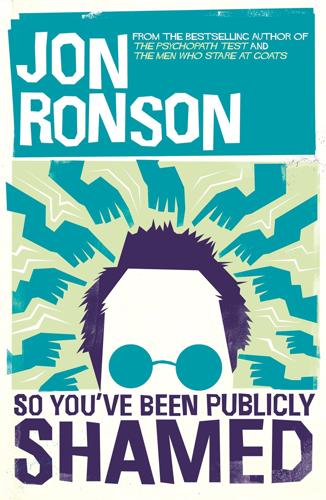
So You've Been Publicly Shamed
by
Jon Ronson
Published 9 Mar 2015
I emailed him back. ‘I’m a journalist …’ I never heard from him again. * The Village Pub in Woodside, near Menlo Park, Silicon Valley, looks like no big deal from the outside, but when you get inside you realize it’s massively upmarket and filled with tech billionaires - the restaurant version of the nonthreatening clothes the tech billionaires were wearing. I told my dining companion, Michael Fertik, that he was the only person from the mysterious reputation-management world who had returned my email. ‘That’s because this is a really easy sector in which to be an unappealing, scurrilous operation,’ he said.
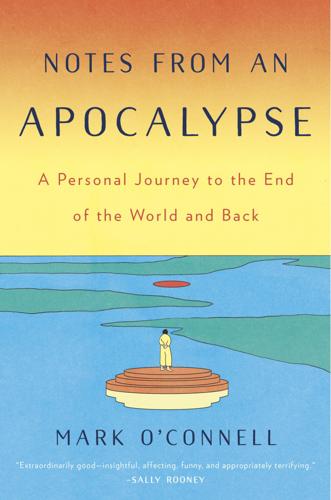
Notes From an Apocalypse: A Personal Journey to the End of the World and Back
by
Mark O'Connell
Published 13 Apr 2020
It seemed odd, I said, given all this seismic activity, that superrich Silicon Valley technologists were supposedly apocalypse-proofing themselves by buying up land down here. “Yeah,” said Anthony, “but some of them are buying farms and sheep stations pretty far inland. Tsunamis aren’t going to be a big issue there. And what they’re after is space, and clean water. Two things we’ve got a lot of down here.” It was precisely this phenomenon—of tech billionaires buying up property in New Zealand in anticipation of civilizational collapse—that constituted our shared apocalyptic obsession. This was the reason I had come down here, to find out about these apocalyptic retreats, and to see what New Zealanders thought of this perception of their country. In any discussion of our anxious historical moment, its apprehensions of decay and collapse, New Zealand was never very far from being invoked.
…
Creative forces had been unleashed, he said, and it was now clear how we could get to Mars. It was Zubrin who had brought Musk into the Martian fold—before he started SpaceX, Musk had donated $100,000 to help fund the Utah station—and he was now a sort of John the Baptist with respect to the billionaire space entrepreneur. (Musk was one of a handful of tech billionaires, including Jeff Bezos and Richard Branson, who were investing large amounts of their fortunes in the prospect of privatized space travel, projects that were as often as not presented as a means of securing the future itself, as though the last hope for the species was the largesse of billionaires who possessed both the genius and heroism of spirit to save an imperiled humanity.)

Stories Are Weapons: Psychological Warfare and the American Mind
by
Annalee Newitz
Published 3 Jun 2024
After police killed George Floyd, I watched as disinformation about the Black Lives Matter movement piled up on social media,1 where anonymous accounts falsely blamed protesters for violence.2 A conspiracy theory from 2016 about pizza-eating pedophiles radicalized a huge number of right-wing extremists, who later joined crowds storming the Capitol, trying to murder the vice president and overturn the 2020 presidential election. And then the media itself began to implode. Tech billionaire Elon Musk bought Twitter—once a key part of America’s digital public sphere—and turned it into a bizarro right-wing propaganda machine in a matter of months. OpenAI, the company that created the ChatGPT app, warned that its product might cause the apocalypse—then funded a studio that would help newspapers use it to replace journalists.3 Every time I thought I had a handle on what was happening, some new development would send me into a spiral of nihilism.
…
The Bell Curve was a gift to conservative policymakers, who used it to attack affirmative action programs. Pat Buchanan, a conservative adviser to Reagan who championed the idea of “culture war” in a 1992 speech, had been arguing against affirmative action programs since the 1970s by citing Herrnstein’s early research.11 Tech billionaire Peter Thiel, who became one of Trump’s main allies in Silicon Valley, mentioned The Bell Curve in a 1996 commentary on why affirmative action had failed.12 Armed with Herrnstein and Murray’s research, these powerful men helped persuade Americans to gut affirmative action. In 1996, Californians voted to end affirmative action programs in governmental institutions including higher education, and Texas followed suit;13 in 2023, a Supreme Court ruling banned these programs nationwide.
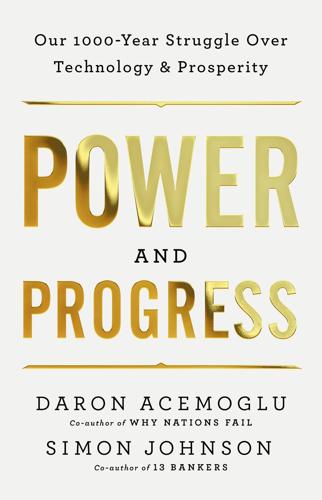
Power and Progress: Our Thousand-Year Struggle Over Technology and Prosperity
by
Daron Acemoglu
and
Simon Johnson
Published 15 May 2023
UBI, which promises an unconditional dollar amount for every adult, has emerged as a popular policy idea in some left-wing circles, among more libertarian scholars such as Milton Friedman and Charles Murray, and with tech billionaires such as Amazon’s Jeff Bezos. Support for the idea is rooted, in part, in the clear inadequacies of the safety net in many countries, including the United States. But it also receives a powerful boost from the narrative that robots and AI are pushing us toward a jobless future. And so, the narrative goes, we need the UBI in order to provide income to most people (and to prevent the pitchfork uprising that some tech billionaires are fearing). UBI is not ideal for bolstering the social safety net, however, because it transfers resources not just to those who need them but to everybody.
…
To regain shared prosperity, we must redirect technology, and this means activating a version of the same approach that worked more than a century ago for the Progressives. This can start only by altering the narrative and the norms. The necessary steps are truly fundamental. Society and its powerful gatekeepers need to stop being mesmerized by tech billionaires and their agenda. Debates on new technology ought to center not just on the brilliance of new products and algorithms but also on whether they are working for the people or against the people. Whether digital technologies should be used for automating work and empowering large companies and nondemocratic governments must not be the sole decision of a handful of entrepreneurs and engineers.
…
Now with AI, renowned MIT economists Daron Acemoglu and Simon Johnson explain in their important and lucid book how the transformation of work could make life even worse for most people, or, possibly, much better––depending on the political and social and technological choices we make starting now. We must ‘stop being mesmerized by tech billionaires,’ they warn, because ‘progress is never automatic.’ With revealing, relevant stories from throughout economic history and sensible ideas for systemic reform, this is an essential guide for this crucial battle in the ‘one-thousand-year struggle’ between the powerful and everyone else.” —Kurt Andersen, author of Evil Geniuses “One powerful thread runs through this breathtaking tour of the history and future of technology, from the Neolithic agricultural revolution to the ascent of artificial intelligence: Technology is not destiny, nothing is pre-ordained.
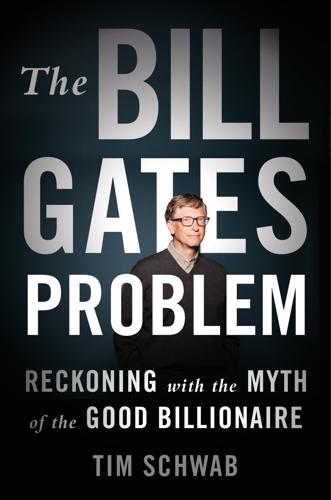
The Bill Gates Problem: Reckoning With the Myth of the Good Billionaire
by
Tim Schwab
Published 13 Nov 2023
Yet, here he is, thumping his chest, hogging the podium, and bleating into a megaphone his solutions on everything from climate change to contraceptive access to the Covid-19 pandemic. Twenty years into Gates’s grand experiment in philanthropy, we are long overdue for a reappraisal of the world’s most powerful humanitarian, especially as a new generation of tech billionaires begins to follow in his footsteps. Jeff Bezos and his ex-spouse, MacKenzie Scott, have both pledged to give away most of their fortunes, more than $150 billion combined. Mark Zuckerberg has made similar claims, as have hundreds of other super-wealthy signatories to the “Giving Pledge” the Gates Foundation created to expand billionaire philanthropy.
…
I think for a lot of foundations … the work is very much looking forward, like, ‘What do we do in the future?’ without taking into account what happened in the past.” Of course, Bill Gates’s wealth comes from Microsoft, a company he views as having been an engine of social progress, inspiring a computer revolution. Villanueva told me this view is fairly common among tech billionaires, the idea that “‘We haven’t harmed anyone.’ Regardless, you have to take into account, when you look at folks who have been able to succeed in this country—especially if you’re born white, if you’re born into privilege—you’re doing work inside of a construct that has created opportunities that others don’t have in this country.
…
The WHO, Murray reported, was simply “ill suited for the role of global monitoring and evaluation of health … We believe that the only viable solution will be to create a new, independent, health monitoring organisation.” What Murray did not clearly disclose was that he himself planned to run this new organization. He first secured a promise of $115 million from tech billionaire (and onetime Bill Gates adversary) Larry Ellison to start his new research institute at Harvard. For reasons that are not totally clear, Ellison abandoned the project before it got off the ground. The student newspaper at Harvard, the Crimson, citing an anonymous source, reported that “Ellison had expressed disenchantment with Murray in private meetings on his yacht.”
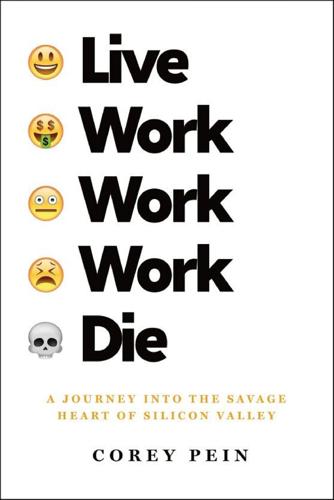
Live Work Work Work Die: A Journey Into the Savage Heart of Silicon Valley
by
Corey Pein
Published 23 Apr 2018
The house has multiples of nearly every room, with seven bedrooms, seven full bathrooms, four half-baths, two kitchens, two family rooms, two offices, and three rooftop terraces. There is, however, only one basketball court. An architect who designed custom luxury homes featured in magazines like Architectural Digest told me that nobody lived in those houses anyway. “The people who own them,” he said, “all have five others.” Some tech billionaires even owned five houses in the same place. Down in Palo Alto, Mark Zuckerberg purchased four properties adjacent to his $7 million five-bedroom home for a combined $39 million—more than ten times their assessed value. The purpose of the land grab was to maintain the seclusion of Zuckerberg’s backyard and master bedroom.
…
All the same, Thiel said, “You could never disown anything that you’ve written.” * * * The rise of the neoreactionaries was not exclusively a coup orchestrated from above with the help of powerful, well-connected hyperlibertarians like Thiel, Patri Friedman, and Trump’s campaign financier, the tech billionaire Robert Mercer. It was also a movement from below, embraced by thousands—and eventually perhaps by millions—of disaffected young people. While the neoreactionaries expounded at tiresome length about their aims, they revealed their individual motivations only in glimpses. Justine Tunney, the Google engineer–cum–Moldbug booster, provided one such peek inside the neoreactionary mind.
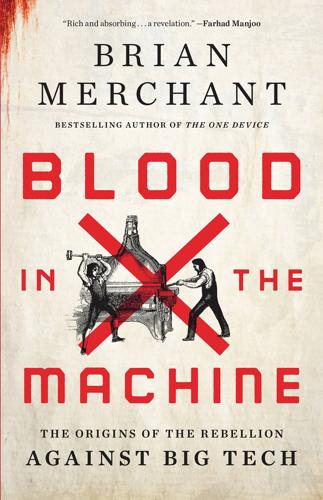
Blood in the Machine: The Origins of the Rebellion Against Big Tech
by
Brian Merchant
Published 25 Sep 2023
Or will the machines push us out of our jobs and deposit us into a dystopia? We are chewing over the machinery question all over again, in barely updated language. Out of this, the owners of these technologies emerged with almost inconceivable stores of wealth and power. In 2022, seven of the ten richest people in the world were tech billionaires. This newest wave of entrepreneurs consolidated their wealth and influence in much the same way that the nineteenth-century ones did—by using the new tech, or the idea of the tech, to squeeze workers harder and in more creative ways. Take the most infamous two, as of the 2020s. Jeff Bezos drove Amazon to global dominance by promising a cheaper and more efficient alternative to brick-and-mortar retail stores: an online shopping portal paired with hyper-efficient fulfillment centers and distribution nodes.
…
The reason Yang argues that this is “not necessarily awesome,” even for the titans who have profited handsomely by all this disruption, is that after years of chalking up the losses to inevitable technological change, the public’s ire has turned toward the owners of the algorithms—and it could tip into violence against them. Yang said that the specter of a world in which a few tech billionaires accelerate the automation and digital degradation of work is not only exceedingly grim, but destined to become reality. Inequality will reach levels even more starkly dramatic than today. “Other people are going to be pushed into deprivation and desperation,” he said, “and that’s going to be multiplied times thousands and hundreds of thousands.”
…
As a result, anger is growing at the ultrarich, even in the United States, a nation that has historically admired them. “Why does everybody suddenly hate billionaires? Because they’ve made it easy,” the Washington Post mused in 2019. Beyond a matter of optics, their influence over politics is increasingly considered malign, and that includes the tech billionaires—once the twenty-first century’s most revered businessmen. Polls conducted in 2021 show that Facebook CEO Mark Zuckerberg is deeply unpopular, and more people dislike Amazon founder Jeff Bezos than like him. The scorn is increasingly bipartisan; while liberals take them to task for amassing monopoly power and for the poor labor conditions at their companies, conservatives accuse them of political bias and censorship.
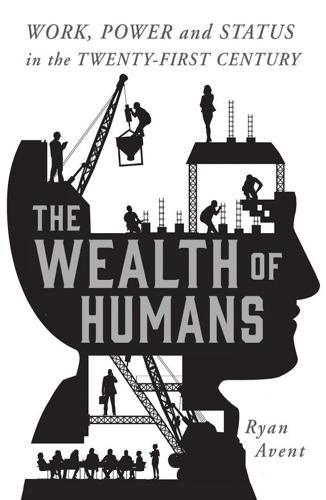
The Wealth of Humans: Work, Power, and Status in the Twenty-First Century
by
Ryan Avent
Published 20 Sep 2016
Other companies would have filled that niche and other men, arguably, would have made that fortune. That is not to say that individual effort doesn’t matter; it matters tremendously. But the wealth generated by individual effort depends entirely on the society in which that effort is applied. Had Bill Gates been born in and remained in Somalia, he would not be a tech billionaire. Indeed, had a teenaged Bill Gates somehow been taken to Somalia and a teenaged Somali brought to America in his place, Gates would almost certainly be poorer today than the Somali. Somali society does not support an economy that can generate high incomes, while American society does. A makers-and-takers conception of the world is one that neglects the social foundation on which wealth is built.
…
The less succour they receive from existing political institutions, the more open individual workers are likely to be to radical political movements that offer the possibility of political expression and economic power. The owners of the factors that are scarce, on the other hand, are busy earning enormous fortunes that will persist for years. Tech billionaires and oil magnates, media barons and finance moguls are able to wield market power to accumulate vast wealth, and they will use this wealth to attempt to shape political developments: by supporting ideological movements or financing their own campaigns or donating to candidates. Because scarcity matters greatly to the distribution of economic rewards, the labour abundance created by the digital revolution cannot help but have significant political consequences. 5 The Firm as an Information-Processing Organism Most people work for big companies.

American Marxism
by
Mark R. Levin
Published 12 Jul 2021
Department of Commerce, https://www.slideshare.net/AllumBokhari/ntia-hate-crimes-report-january-2021/1 (April 11, 2021). 71 Ibid. 72 Emily Jacobs, “Democrats demand more censorship from Big Tech bosses,” New York Post, November 18, 2020, https://nypost.com/2020/11/18/democrats-use-big-tech-hearings-to-demand-more-censorship/ (April 11, 2021). 73 “The War on Free Speech,” Pittsburgh Post-Gazette, January 26, 2021, https://www.post-gazette.com/opinion/editorials/2021/01/26/The-war-on-free-speech-Parler-Social-Media-technology/stories/202101140041 (April 11, 2021). 74 Krystal Hur, “Big tech employees rally behind Biden campaign,” Opensecrets.org, January 12, 2021, https://www.opensecrets.org/news/2021/01/big-tech-employees-rally-biden/ (April 11, 2021). 75 Ari Levy, “Here’s the final tally of where tech billionaires donated for the 2020 election,” CNBC, November 2, 2020, https://www.cnbc.com/2020/11/02/tech-billionaire-2020-election-donations-final-tally.html (April 11, 2021). 76 Chuck Ross, “Biden Has Ties to 5 Major Tech Companies,” Daily Caller, January 10, 2021, https://dailycaller.com/2021/01/10/biden-big-tech-apple-facebook-trump-parler/ (April 11, 2021). 77 Ryan Lizza, Daniel Lippman, and Meridith McGraw, “AOC wants to cancel those who worked for Trump.
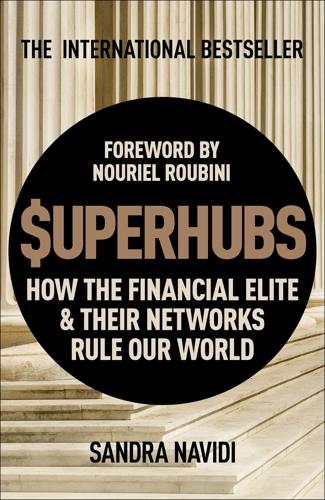
SUPERHUBS: How the Financial Elite and Their Networks Rule Our World
by
Sandra Navidi
Published 24 Jan 2017
Business tycoon John D. Rockefeller set up his family office in the nineteenth century. Often families have come into great wealth by building enormously successful companies, sometimes over the span of several generations. Among them are old industrial dynasties, nouveau industrialists, or tech billionaires. Some families consist of fewer than a dozen members, while others encompass hundreds. The priority of family offices is wealth preservation. According to a saying, a fortune lasts for three generations: The first one makes it, the second one lives on it, and the third one squanders it. Most family principals are not financial titans in the classic sense because they have not made their money in the financial services industry.
…
Not only is it hard for women to break into the clubby environment, but those who have succeeded are “leaving the industry in droves.”11 As of 2014, only 13 percent of venture-backed companies had at least one female cofounder, and only 4 percent of leading venture capitalists are women, although a study found that female-run startups produce a 31 percent higher return on investment than startups run by men.12 In general, white men hire white men. This “progressive” sector is just as conservative and sexist as the rest of the financial industry, as numerous lawsuits have unearthed; especially when fund-raising, women often face misogynistic and inappropriate behavior. Tech billionaires, the history-making “industrialists” of our time, are exclusively male. In the venture capital industry, deep relationships are of utmost importance to source deals and form productive working relationships with entrepreneurs, who mostly happen to be male. The main reason why so few women make it to the very top of finance is because they are largely excluded from the old boys’ network.
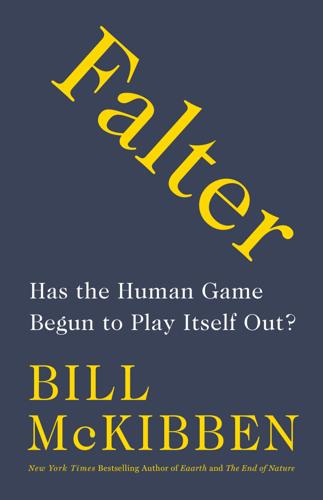
Falter: Has the Human Game Begun to Play Itself Out?
by
Bill McKibben
Published 15 Apr 2019
The particular politics of one country for one fifty-year period will have rewritten the geological history of the earth, and crimped the human game. That’s what leverage looks like. 12 There’s one other spot on Earth with game-changing leverage. And though it’s not that far as the drone flies from the Palm Springs resorts where the Kochs gather their cronies each year, it’s a very different world. The tech billionaires who inhabit Silicon Valley aren’t at all like the fossil fuel moguls and assorted other magnates who celebrated Trump’s rise to power. Instead of aging troglodytes, they’re mostly youthful social progressives. Don’t look for them on the golf course; they’re kite-surfing. No, they’re not. They used to kite-surf, but now they’re hydrofoiling.
…
‘That’s one small step for a man, one giant leap for mankind.’ So it was.” Rand would like the current space program even more. President Trump has proposed zeroing out the budget for the International Space Station, meaning that much of America’s reach into space will need to be funded by the band of tech billionaires who have seized the opportunity. On this day, it was Musk’s company SpaceX, but the flare of rocket engines also illuminated the vast hangar of Jeff Bezos’s Blue Origin project. There are others: the late Paul Allen, with his six-engine space plane; Richard Branson, already taking reservations for a Virgin Galactic spacecraft that will carry passengers and satellites into space.
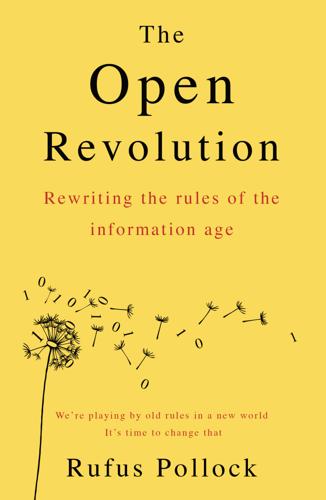
The Open Revolution: New Rules for a New World
by
Rufus Pollock
Published 29 May 2018
Old Rules in a New World And the result of running the information economy by the old rules of intellectual monopoly rights is spiralling inequality. In 2016, the eight richest people in the world had as much money as the bottom 50 per cent of humanity – that’s three-and-a-half billion people. And of those eight, six were tech billionaires. This is a political timebomb. It is essential we understand the true causes of this unsustainable concentration of wealth and power: the exclusive ownership of digital information in combination with platform effects and costless copying. We must see the cost in stunted growth and lost opportunities.
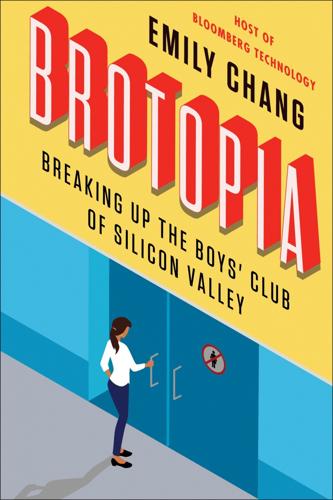
Brotopia: Breaking Up the Boys' Club of Silicon Valley
by
Emily Chang
Published 6 Feb 2018
“A new social class without room in it for others”? Young wasn’t specifically describing the tech industry, but he nailed it. That the winners in Silicon Valley deserve all the prizes they have won is an argument that one hears, both explicitly and subtextually, across Silicon Valley. Of the many tech billionaires I’ve met, all have seemed to be very smart, creative thinkers and hard workers. Sometimes exceptionally so. But they’ve also been lucky. In some cases, more lucky than good. And in many cases, no more good than many others who were less privileged and less lucky. If Silicon Valley were truly a meritocracy, and opportunities were indeed rewarded according to one’s true skill and ability to do the job, that would be great for all workers, men and women.
…
Other researchers have found: Tara Sophia Mohr, “Why Women Don’t Apply for Jobs Unless They’re 100% Qualified,” Harvard Business Review, Aug. 25, 2014, https://hbr.org/2014/08/why-women-dont-apply-for-jobs-unless-theyre-100-qualified. When the first tech bubble burst: Marie Thibault, “The Next Bill Gates,” Forbes, Jan. 19, 2010, https://www.forbes.com/2010/01/19/young-tech-billionaire-gates-google-yahoo-wealth.html#6257bb713333. Given that entitlement: Emily Grijalva et al., “Gender Differences in Narcissism: A Meta-analytic Review,” Psychological Bulletin 141, no. 2 (March 2015): 261–310, https://doi.org/10.1037/a0038231. prominent role in high finance: Meredith Lepore, “Analysts Say Having More Female Bankers Could Have Prevented the Financial Crisis,” Grindstone, Jan. 26, 2012, http://www.thegrindstone.com/2012/01/26/office-politics/analysts-say-having-more-female-bankers-could-have-prevented-the-financial-crisis-181.
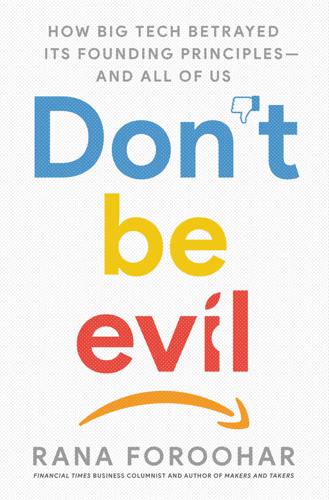
Don't Be Evil: How Big Tech Betrayed Its Founding Principles--And All of US
by
Rana Foroohar
Published 5 Nov 2019
It is in this spirit that Palantir’s Peter Thiel and other powerful tech entrepreneurs and investors have suggested that California secede from the Union; Thiel once funded a plan for a network of floating islands that would operate outside of U.S. government jurisdiction, while he and other tech billionaires maintain hideaways in New Zealand. * * * — IN THE MEANTIME, Big Tech itself—like Big Finance before it—has controlled the narrative, using complexity to obfuscate. I cannot tell you how many conversations I have had with fast-talking technologists who try to throw as much jargon against the wall as possible to see what sticks.
…
In Seattle, for example, the city council had proposed imposing a modest $500 per employee tax on local businesses to help address the city’s growing homelessness epidemic. But businesses like Starbucks and Amazon complained, and the tax was promptly dropped to $275.31 And in San Francisco, tech billionaires Jack Dorsey of Twitter, Stripe cofounder Patrick Collison, and Zynga founder Mark Pincus fought tooth and nail against a 2018 ballot proposition to tax companies with revenues of over $50 million a mere 0.5 percent in order to fund local housing and homelessness services. (The measure passed, and was subsequently challenged in court.)
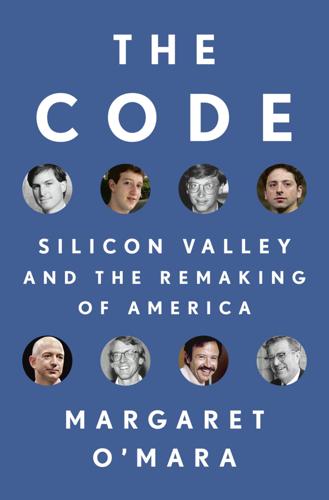
The Code: Silicon Valley and the Remaking of America
by
Margaret O'Mara
Published 8 Jul 2019
Microsoft was a land of sweatshirts and rumpled khakis; Ballmer was, as Gates put it, “a good suit-type guy.” Gates asked his more presentable colleague to join him at the table for the IBM pitch.3 Ballmer may have had the suit, but Gates ruled the room. The twenty-four-year-old reveled in the technical details, and IBM didn’t awe him. So many of the early tech billionaires had grown up in families without connections or wealth. Gates was different. He was the grandson of a banker and the son of a successful lawyer. His mother, Mary, was currently chair of the board of the national United Way—alongside none other than IBM’s new CEO, John Opel. (When an IBM executive mentioned the Microsoft deal to Opel at a later stage of the negotiations, the CEO responded, “Oh, that’s run by Bill Gates, Mary Gates’s son.”)4 Gates also remained steadfast in the conviction that had propelled him to write his famous letter to the Homebrew Computer Club several years earlier: that computer software should be a stand-alone intellectual and commercial product, as valuable as the hardware itself.
…
Two people provided great inspiration and encouragement but did not live to see this project’s completion. One was Michael B. Katz, my graduate mentor, collaborator, and friend. A historian of social policy and poverty who ably covered his bemusement when one of his advisees ended up specializing in the lives of high-tech billionaires, Michael was bullish on this project from the start. In one of our last e-mail exchanges, I told him about my ideas for this project; he responded with characteristic enthusiasm: “Get writing—we need this book!” Another great champion was David Morgenthaler, who died in June 2016 at the age of 96, and whose appreciation for history’s long arc came from having lived so long and so fruitfully.
…
Davies, “De Gaulle Hailed by San Francisco,” The New York Times, April 28, 1960, 2; John Markoff, correspondence with the author, September 21, 2018; audience conversation with the author, Stanford Historical Society, Stanford, Calif., January 22, 2004. Waverly Street, already famous for the HP garage, later became known for the tech billionaires who lived there: Google’s Larry Page would one day live directly across from the home of the teenage Napoleon; Steve Jobs and his family were down the road. Palo Alto was, and is, a small town. 16. Margaret O’Mara, “Silicon Dreams: States, Markets, and the Transnational High-Tech Suburb,” in Making Cities Global: The Transnational Turn in Urban History, ed.

This Is Not a Drill: An Extinction Rebellion Handbook
by
Extinction Rebellion
Published 12 Jun 2019
Heck, even the robots in that show want to escape the confines of their bodies and spend the rest of their lives in a computer simulation. The mental gymnastics required for such a profound role reversal between humans and machines all depend on the underlying assumption that humans suck. Let’s either change them or get away from them, for ever. Thus, we get tech billionaires launching electric cars into space – as if this symbolizes something more than one billionaire’s capacity for corporate promotion. And if a few people do reach escape velocity and somehow survive in a bubble on Mars – despite our inability to maintain such a bubble even here on Earth in either of two multibillion-dollar Biosphere trials – the result will be less a continuation of the human diaspora than a lifeboat for the elite.
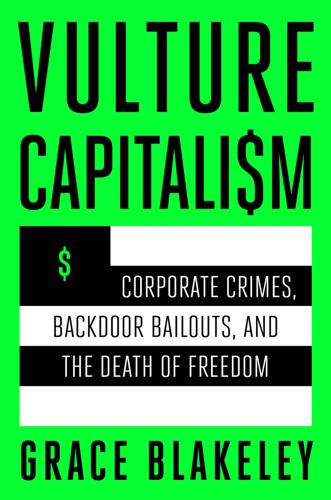
Vulture Capitalism: Corporate Crimes, Backdoor Bailouts, and the Death of Freedom
by
Grace Blakeley
Published 11 Mar 2024
Xi Jinping has stated outright that achieving “common prosperity” is “not just an economic issue, but a significant political one that matters to the party’s basis to rule.” Vincent Ni, “The Party’s Over: China Clamps Down on Its Tech Billionaires,” The Guardian, August 21, 2021, https://www.theguardian.com/business/2021/aug/21/the-partys-over-china-clamps-down-on-its-tech-billionaires. 165. “Xi Jinping’s Crackdown on Chinese Tech Firms Will Continue,” The Economist, November 8, 2021, https://www.economist.com/the-world-ahead/2021/11/08/xi-jinpings-crackdown-on-chinese-tech-firms-will-continue. 166. The Belt and Road Initiative represents “nothing less than an attempt to solve China’s problems of overcapacity and surplus capital, declining trade opportunities, growing debt, and falling rates of profit through a geographic expansion of China’s economic activity and processes.”

Lonely Planet's 2016 Best in Travel
by
Lonely Planet
Published 30 Sep 2015
Renewable energy initiatives are popping up all over the islands. Wind and wave energy on Maui, geothermal power on the Big Island and solar panels across the archipelago are all signs that the islands are on track to achieve their goal of 70% energy self-sufficiency by 2030. Indeed, with the financial backing of tech billionaire Larry Ellison, the small central island of Lana‘i hopes to become a self-sufficient dreamland of electric cars, sustainable agriculture and green energy. Festivals & events Starting on Easter Sunday, Hilo on the Big Island celebrates Hawaiian art and culture for a week with hula competitions at the Merrie Monarch Festival, honouring King David Kalakaua, who was known for his patronage of the arts.
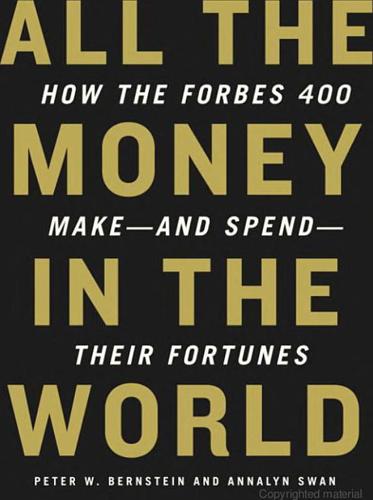
All the Money in the World
by
Peter W. Bernstein
Published 17 Dec 2008
It was all the more impressive, then, that Huizenga, a college dropout who started his business with one used garbage truck, was the man standing in front of them. Think of Forbes 400 members5 and what comes to mind are tycoons such as computer titan Michael Dell, America Online’s Steve Case, eBay’s Pierre Omidyar, and Qualcomm’s Irwin Jacobs—all former winners of Ernst & Young awards, all high-tech billionaires who made fortunes on flashy, brainy businesses. Then there are the media mavens—Rupert Murdoch, Barry Diller, David Geffen—whose boldface names appear regularly in the papers. Huizenga’s fortune, by contrast, derives from a patchwork of low-tech, low-visibility, low-prestige ventures: trash hauling, video rentals, auto sales.
…
“They may occur below the general radar, but the possibilities are there.” In the end, what begins as a little niche venture can turn into the next Little Caesars Pizza or 99 Cents Only. And although the odds are formidable, one thing’s for sure: While public taste may prove fickle, and new goods and services continually spring up to challenge old ones, low-tech billionaires will always be around. After all, you can’t eat computer chips or hedge funds, and even media moguls need their trash hauled away. 6 West Coast Money On a September morning in 1980, a twenty-four-year-old entrepreneur named Bill Gates showed up for the first of a series of business meetings at IBM’s offices in Boca Raton, Florida.
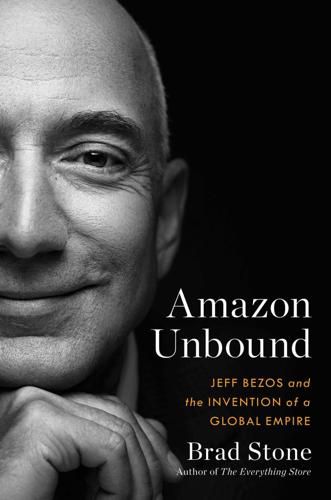
Amazon Unbound: Jeff Bezos and the Invention of a Global Empire
by
Brad Stone
Published 10 May 2021
exceeding 1.5 million for the first time: Joshua Benton, “The Wall Street Journal Joins the New York Times in the 2 Million Digital Subscriber Club,” Nieman Lab, February 10, 2020, https://www.niemanlab.org/2020/02/the-wall-street-journal-joins-the-new-york-times-in-the-2-million-digital-subscriber-club/ (January 20, 2021). new $65 million Gulfstream G650ER private jet: Marissa Perino, “The Most Outrageous Splurges of Tech Billionaires, from Richard Branson’s Private Island to Jeff Bezos’ $65 Million Private Jet,” Business Insider, October 15, 2019, https://www.businessinsider.com/elon-musk-bill-gates-jeff-bezos-tech-billionaire-wildest-purchases-2019-10 (January 20, 2021), and Marc Stiles, “Costco Just Sold a $5.5M Boeing Field Hangar to Jeff Bezos,” Puget Sound Business Journal, October 22, 2015, https://www.bizjournals.com/seattle/blog/techflash/2015/10/costco-just-sold-a-5-5boeing-field-hangar-to-jeff.html (January 20, 2021).
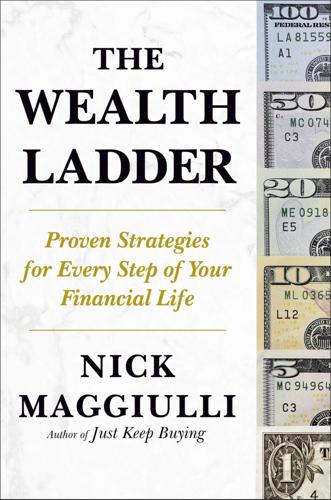
The Wealth Ladder: Proven Strategies for Every Step of Your Financial Life
by
Nick Maggiulli
Published 22 Jul 2025
They’re the ones working it.[16] While this comment might seem exaggerated to some, there is data to back it. A study from Israel’s Finance Ministry found that “the income of someone’s parents is the factor that correlates most to entrepreneurship, with higher wealth connected to a greater likelihood of being a start-up founder.”[17] Many prominent tech billionaires, including Bill Gates and Jeff Bezos, had parental support in the creation of their first businesses.[18] Of course, I’m not suggesting that rich parents are a requirement to become a successful entrepreneur. However, having some sort of financial resources (whether your family’s or your own) will make it much easier for you to start a company.
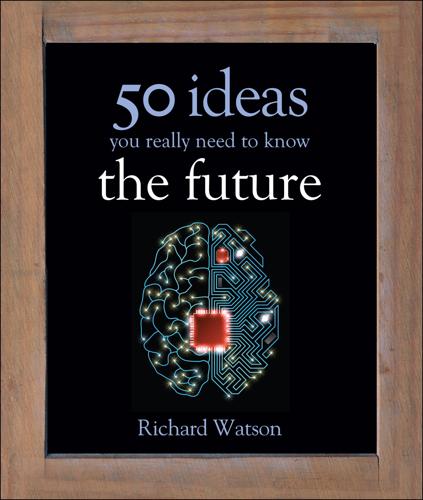
50 Future Ideas You Really Need to Know
by
Richard Watson
Published 5 Nov 2013
Clarke, sci-fi author, inventor and futurist The Russian Space Agency is no longer allowing paying passengers, but billionaire Richard Branson’s Virgin Galactic is currently offering a similar experience, albeit suborbital, for a much more down-to-earth price of $200,000. Other entrepreneurial companies active in this field include Space Adventures and Elon Musk’s SpaceX (Elon Musk is the forty-year-old entrepreneur behind PayPal and Tesla Motors). Rocket man Space is the next frontier for entrepreneurs, especially high-tech billionaires. Paul Allen, cofounder of Microsoft, has announced a plan to build a commercial spaceship that could be space bound before 2020. The craft is powered by six jumbo-jet engines and has a wingspan of 115m (380ft), the largest ever for a plane. The idea is to jet up to 9,100m (30,000ft), then use boosters to go into orbit, either to dispatch commercial cargo or to give thrill seekers a ride they’d never forget.
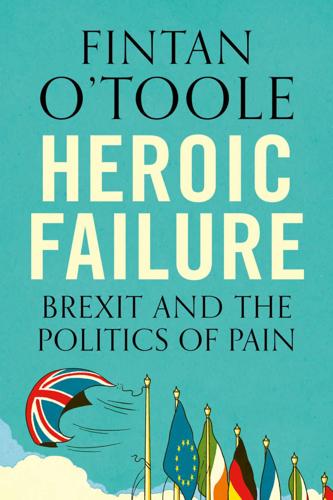
Heroic Failure: Brexit and the Politics of Pain
by
Fintan O'Toole
Published 22 Jan 2018
The Sovereign Individual has an appendix offering services – an investment vehicle in Bermuda, membership of an offshore trust, advice on how to ‘secure your own tax-free zone’ and membership of The Sovereign Society, composed of ‘would-be Sovereign Individuals… who have clubbed together to help one another achieve independence’.32 (The desire for self-governing enclaves for the ultra-rich is an active project for the Trump-supporting tech billionaire Peter Thiel, who wants to create a marine republic for the elite off the coast of California.) Crucial in this dystopian/utopian vision is the idea of exit. Rees-Mogg senior wrote that even in the early stages of this new age ‘many residents of the largest and most powerful Western nation-states, like their counterparts in East Berlin in 1989, will be plotting to find their way out… abandoning the country of their birth is not [an] unthinkable decision’.33 The nation state, for these new gods, is a ‘predatory institution’ from which ‘the individual will want to escape’.34 Rees-Mogg identified New Zealand as an ideal location for this new post-national elite, a ‘domicile of choice for wealth creation in the Information Age’.
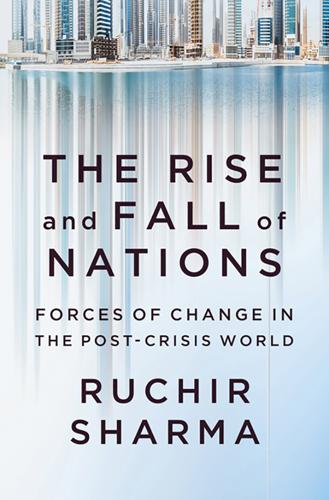
The Rise and Fall of Nations: Forces of Change in the Post-Crisis World
by
Ruchir Sharma
Published 5 Jun 2016
The balance of power between good and bad billionaires can change fast, and globally this balance has shifted three times within the last fifteen years. At the height of the dot-com boom in 2000, tech billionaires outnumbered energy billionaires three to one worldwide. A decade later the rise in prices for oil and other commodities flipped the balance, with energy tycoons outnumbering tech magnates three to one. By 2012, the downturn in commodity prices was shifting the balance again, and tech billionaires outnumbered energy billionaires by about 1.5 to one, or 126 to 78 worldwide. The revival of the good billionaires has continued since and has even spread to economies more closely associated with corruption than tech innovation.
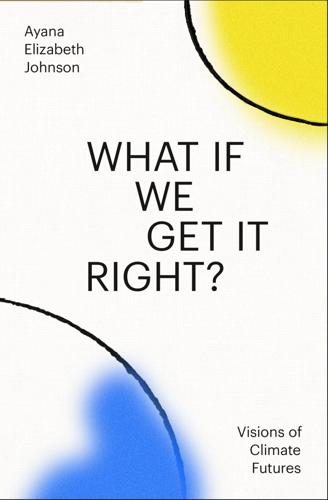
What If We Get It Right?: Visions of Climate Futures
by
Ayana Elizabeth Johnson
Published 17 Sep 2024
And I think that’s important. You hear it a lot in slogans: “There is no planet B.” But it actually is profound that there’s no way out of this, there’s no escape plan. We can’t just mess this up and go somewhere else. Or even if we could, it would be horrible. You would be hanging out in an oxygen tank with a bunch of tech billionaires on an inhospitable planet. Ayana: Hard pass. So this is it. Kate: This is it. Ayana: Okay, please give us a reality check for planet Earth. How has the climate already changed and where are we heading if we don’t get it together and shift this trajectory we’re on? Kate: What’s going on right now is both really, really complicated and incredibly simple.
…
Ayana: What would you say is the nerdiest, least sexy, most esoteric thing we need to do to make this vision of climate journalism a reality? Kendra: We need to find a way to pay for journalism. There’s been a mass erosion of local journalism because it can’t pay for itself. And then on the national level, much of that journalism is either paid for by tech billionaires, or it’s through a model that’s pretty extractive. Ayana: Extractive in what sense? Kendra: Extractive in the sense that local news is often a feeder for national news. But national news gets to profit off of it. So, oftentimes, a local news outlet might break a story, but they’re not necessarily the ones getting the website traffic and profiting off of it.
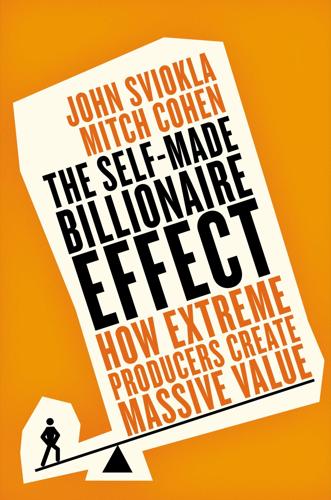
The Self-Made Billionaire Effect: How Extreme Producers Create Massive Value
by
John Sviokla
and
Mitch Cohen
Published 30 Dec 2014
With the first commercially available operating system for IBM-compatible personal computers, Gates established Microsoft as a major player in the software market. Microsoft became known not only for the Windows operating system but also for its consumer electronics and computers. In 2000, the American tech billionaire established the Bill & Melinda Gates Foundation. Gate stepped down as CEO of Microsoft in 2008 to dedicate himself to the foundation. Terry Gou b. 1950, Taiwan Foxconn (Hon Hai Precision, Ltd.) Terry Gou has spent his entire career manufacturing name-brand products on behalf of the companies that sell them.

The Politics of Pain
by
Fintan O'Toole
Published 2 Oct 2019
The Sovereign Individual has an appendix offering services – an investment vehicle in Bermuda, membership of an offshore trust, advice on how to ‘secure your own tax-free zone’ and membership of The Sovereign Society, composed of ‘would-be Sovereign Individuals… who have clubbed together to help one another achieve independence’.32 (The desire for self-governing enclaves for the ultra-rich is an active project for the Trump-supporting tech billionaire Peter Thiel, who wants to create a marine republic for the elite off the coast of California.) Crucial in this dystopian/utopian vision is the idea of exit. Rees-Mogg senior wrote that even in the early stages of this new age many wealthy citizens of Western democracies were already, like people in East Berlin in 1989, planning their exodus: ‘abandoning the country of their birth is not [an] unthinkable decision’.33 The nation state, for these new gods, is a ‘predatory institution’ from which ‘the individual will want to escape’.34 Rees-Mogg identified New Zealand as an ideal location for this new post-national elite, a ‘domicile of choice for wealth creation in the Information Age’.
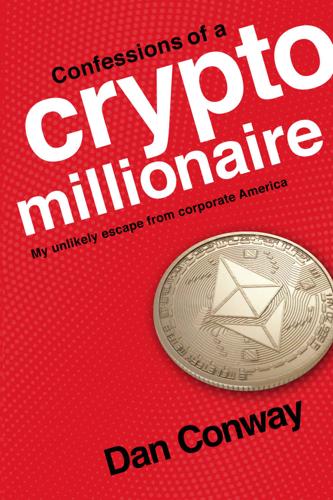
Confessions of a Crypto Millionaire: My Unlikely Escape From Corporate America
by
Dan Conway
Published 8 Sep 2019
In crypto, everyone talks about whales, the ones with the massive number of coins. They are a mythical force, making loads of money by knowing what’s going to happen next. They move their huge stacks for maximum advantage while everyone else is in the dark. I always pictured them as Gordon Gekko or Mr. Robot. A mix of tech billionaires and cold-blooded traders, with maybe a few Russian oligarchs thrown in. I don’t think anyone thought it was a guy like me, sitting in his upstairs bedroom, buying more ETH than most people thought was prudent, then going downstairs and trying like hell to change the water filter in the refrigerator.
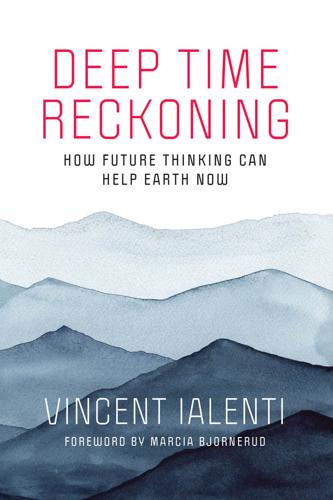
Deep Time Reckoning: How Future Thinking Can Help Earth Now
by
Vincent Ialenti
Published 22 Sep 2020
ANTHROPOCENE CITIZENSHIP 101 In 2013, SpaceX and Tesla Motors CEO Elon Musk asked: “Where will we be in one hundred thousand years if we continue anywhere near our current pace?” Musk answered himself: “Either extinct or on a lot of planets.” This may sound like a bit of a gimmicky question. It may sound like a quirky way to jog the imagination—or the oddball musings of a science fiction enthusiast. Or maybe it sounds like the out-of-touch fantasy of a pompous tech billionaire, seeing himself as an elite vanguard of innovation, shepherding humanity into the future. But what if we had been taught, from an early age, that Musk’s query is one of the most important questions we can ever ask ourselves? What if we truly believed it was our job, and not just some eccentric billionaire’s job, to answer it?
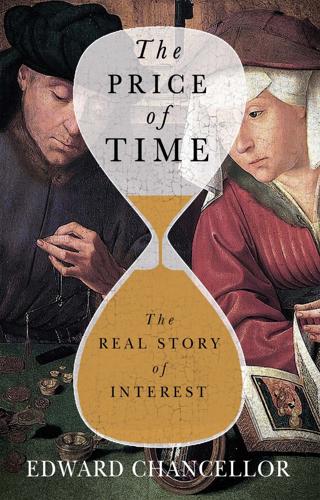
The Price of Time: The Real Story of Interest
by
Edward Chancellor
Published 15 Aug 2022
‘Main Street,’ wrote PIMCO’s ‘Bond King’ Bill Gross, ‘has failed to keep up with Wall Street and corporate America in the race to see who can benefit more from lower yields.’122 Ray Dalio, the hedge fund manager whose own fortune in 2018 was estimated at nearly $17 billion, noted that ‘Disparity in wealth, especially when accompanied by disparity in values, leads to increasing conflict and … revolutions of one sort or another.’123 Tech billionaire Nick Hanauer, an early investor in Amazon, penned an alarmist article for Politico entitled ‘The Pitchforks are Coming … for Us Plutocrats’. Hanauer warned that the United States was becoming less capitalist and more feudal, ‘and so I have a message for my fellow filthy rich, for all of us who live in our gated bubble worlds: Wake up, people.
…
They include entrenching instability in the global system, returning to the modern equivalent of the divisive competitive devaluations of the interwar years and, ultimately, triggering an epoch-defining seismic rupture in policy regimes, back to an era of trade and financial protectionism and, possibly, stagnation combined with inflation.44 Maverick tech billionaire Peter Thiel added a sobering thought: all great historic bubbles, from the Mississippi Bubble to the current day, had coincided with advances in globalization. The previous quarter of a century had produced a string of bubbles and busts that ‘represent[ed] different facets of a single Great Boom of unprecedented size and duration’.
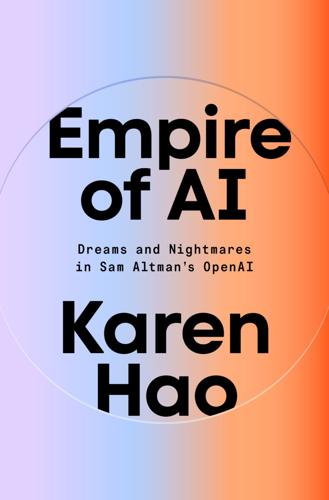
Empire of AI: Dreams and Nightmares in Sam Altman's OpenAI
by
Karen Hao
Published 19 May 2025
* * * — In 2021, as the Amodei siblings announced Anthropic, interest in this catastrophic and existential AI safety ideology was accelerating, chiefly due to EA’s rapidly expanding sphere of influence. EA had grown from a niche philosophy into a mainstream movement through an influx of cash from tech billionaires. A decade earlier, Facebook cofounder Dustin Moskovitz and his wife, former journalist Cari Tuna, had formed a nonprofit called Good Ventures to give away most of their fortune. At the time, Holden Karnofsky, Daniela Amodei’s future husband, had been running a different organization called GiveWell, which he’d founded in 2007 after leaving the hedge fund Bridgewater Associates.
…
With a shared desire to distribute money with evidence-based methods, Good Ventures and GiveWell formed a partnership in 2011, which they later named Open Philanthropy. They began ramping up funding to the key issue areas that MacAskill had recommended—its grants toward AI safety research in particular were guided by the EA framework. Open Philanthropy became an independent organization in June 2017. More recently, a new tech billionaire had entered the scene: Samuel Bankman-Fried, a rapidly rising star for his wild success cofounding the crypto exchange FTX and crypto trading firm Alameda Research. Bankman-Fried, or SBF as he is known, credited EA for his origin story. A physics major at MIT, he said he had wanted to be an academic before MacAskill convinced him over lunch of the moral superiority of “earn to give.”
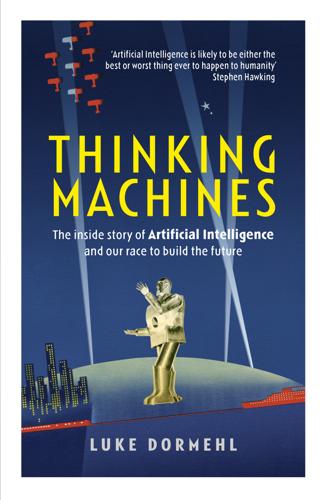
Thinking Machines: The Inside Story of Artificial Intelligence and Our Race to Build the Future
by
Luke Dormehl
Published 10 Aug 2016
Chapter 5. How AI Put Our Jobs in Jeopardy Chapter 6. Can AI Be Creative? Chapter 7. In the Future There Will Be Mindclones Chapter 8. The Future (Risks) of Thinking Machines Conclusion: Rise of the Robots Author Interviews Endnotes Index Acknowledgments Copyright About the Book Tech billionaires, reclusive scientists, dancing vacuum cleaners, voices beyond the grave – how a dream from the 1950s became our modern, super-networked world. Blending amazing stories, interviews, history and science, Luke Dormehl recounts our sixty-year quest for Artificial Intelligence and the incredible pursuit of one of mankind’s greatest projects, the creation of Thinking Machines.
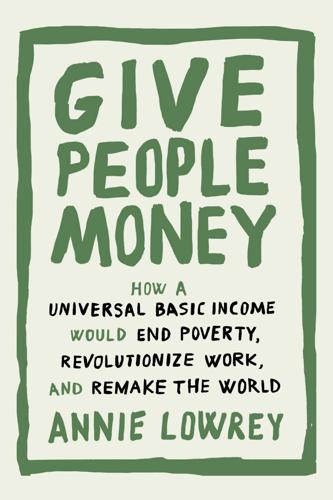
Give People Money
by
Annie Lowrey
Published 10 Jul 2018
Started under Manmohan Singh’s government and embraced fulsomely by Narendra Modi’s, this system provides each Indian with something like a Social Security number, thus tying every ragpicker in Kolkata and billionaire in Mumbai to the federal bureaucracy in Delhi. “What we are creating is as important as a road,” Nandan Nilekani, the tech billionaire who helped shepherd the project into existence, told the New York Times. “It is a road that in some sense connects every individual to the state.” The government really means every individual: as of mid-2017, more than 99 percent of adults were signed up for Aadhaar, with well more than a billion numbers issued.

12 Bytes: How We Got Here. Where We Might Go Next
by
Jeanette Winterson
Published 15 Mar 2021
It is humans who are destroying the planet. It is humans who have turned the dream – the reality – of global connectivity into a 24/7 for-profit surveillance state. It is humans humans need to worry about. AI is still a tool. We aren’t at the AGI stage yet – there is no ‘other’ to blame. It’s down to us. * * * Some tech billionaires, men – and it is men, who have made their fortunes out of the most ubiquitous of AI tools, algorithms – are trying to limit the damage to society they now perceive as a real threat. This isn’t because tech is, in and of itself, a threat – but because of how humans are using the powerful AI tool we have invented.
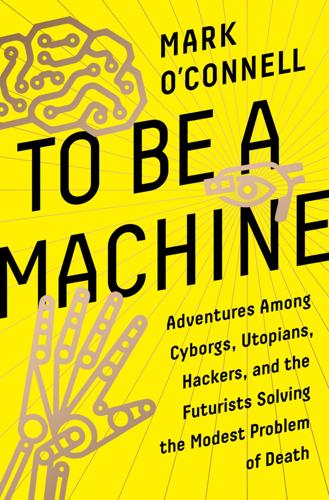
To Be a Machine: Adventures Among Cyborgs, Utopians, Hackers, and the Futurists Solving the Modest Problem of Death
by
Mark O'Connell
Published 28 Feb 2017
He gave me a copy of a book he’d recently self-published called The Transhumanist Wager, an unwieldy novel of ideas about a freelance philosopher named Jethro Knights (a character with certain key biographical particulars in common with his creator) who sails around the world to promote the need for life extension research, and winds up establishing a floating libertarian city-state called Transhumania—a haven for unhampered scientific research into human longevity, a regulation-free utopia of tech billionaires and rationalists—from which he wages an atheist holy war on a theocratic United States. A couple of days later, at a café in San Francisco’s Mission District, he told me of how the novel had not gone over well with any of the 656 agents and publishers he’d sent it out to over the previous year.
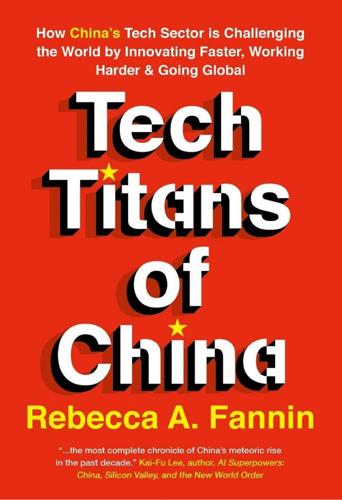
Tech Titans of China: How China's Tech Sector Is Challenging the World by Innovating Faster, Working Harder, and Going Global
by
Rebecca Fannin
Published 2 Sep 2019
DJI’s Phantom drone, introduced in early 2013, was the first minicopter that could be taken out of the box and assembled in one hour for flight, and without falling apart on its first crash. Soon, recreational drones became the latest fad and Wang’s fortunes soared. Wang cracked the Forbes “Richest in Tech” list in 2017, at the age of 37, as Asia’s youngest tech billionaire, worth some $3.2 billion. The publicity-shy Wang, with his circular glasses, tuft of chin stubble, and golf cap became the world’s first drone billionaire. That wealth comes from Wang’s ownership of approximately 45 percent of DJI shares and the company’s profitability. Compared to other Chinese tech companies, DJI has raised relatively small amounts of capital but at a much higher valuation—this is generally a good thing for a startup’s health.
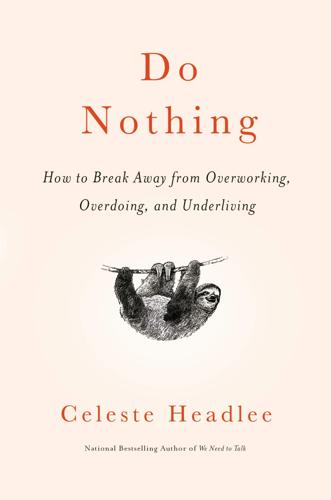
Do Nothing: How to Break Away From Overworking, Overdoing, and Underliving
by
Celeste Headlee
Published 10 Mar 2020
The rest of us stay on the job for the full forty hours because that’s what we’re paid for and we’ll often stay longer, even if we don’t earn overtime, because that’s what is demanded of us by managers who don’t fully understand how to drive productivity or take advantage of its rewards. So society was already fully committed to the worship of hard work during the 1980s and ’90s, when a revolution occurred that really cemented the dominance of the myth of the self-made man: the rise of the tech billionaire. Microsoft was founded in 1975, Apple one year later. Amazon started in 1994, Yahoo! in 1995, and Google in 1998. Those companies are massive now, but they mostly started with a couple guys working hard on a new kind of software, laboring away in virtual obscurity until their products became big sellers.
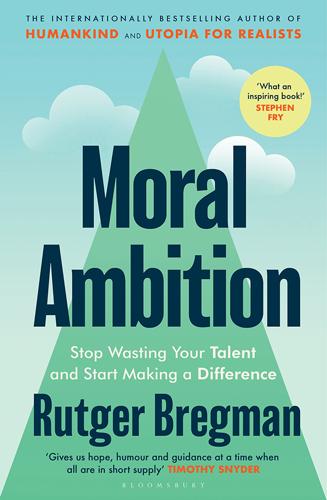
Moral Ambition: Stop Wasting Your Talent and Start Making a Difference
by
Bregman, Rutger
Published 9 Mar 2025
By then, the army’s attention had turned elsewhere, and other countries and companies likewise showed little interest.23 All that time, only a couple of million dollars a year was spent worldwide on developing a malaria vaccine.24 Fifty times as much was invested in research into HIV/AIDS because, well, thousands of activists in wealthy countries had fought for funding.25 For malaria, there was no such movement, likely because it primarily strikes poor people in poor countries. In the end it was a tech billionaire, of all people, who took it upon himself to step in and finally revive research into a vaccine. Support from Bill Gates meant the next stage of development could start: looking into whether the vaccine was safe for children. That stage lasted another twenty years.26 While all of this was happening – from 1980 to 2020 – more than 40 million people succumbed to malaria.
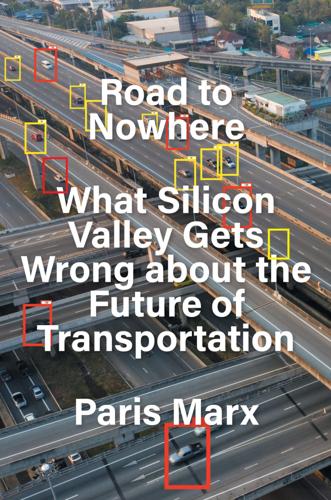
Road to Nowhere: What Silicon Valley Gets Wrong About the Future of Transportation
by
Paris Marx
Published 4 Jul 2022
Putting these three elements together and considering them alongside the current trajectory of our capitalist society reveals a different kind of urban future than the one Musk wants us to believe will solve our problems. Without altering the underlying social relations, these technologies are likely to reinforce the trends of growing tech billionaire wealth and their desire to close themselves off from the rest of society. Recall that the first of Musk’s proposed tunnels was designed to make it easier for him to get from home to work and back without getting stuck in traffic with everyone else. Rather than a network of tunnels for the masses, such a system could be redeployed as one designed by and for the wealthy.
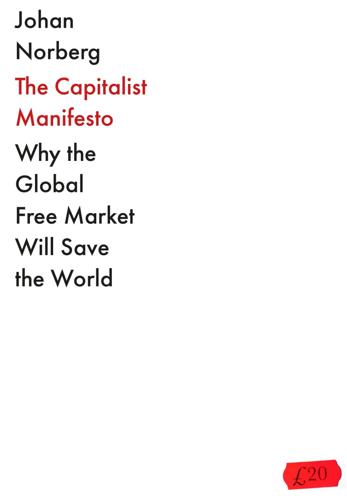
The Capitalist Manifesto
by
Johan Norberg
Published 14 Jun 2023
The company that comes up with methods to reduce the thickness of a soda can by just a tenth of a millimetre can earn millions in material costs (something that has reduced its weight from 85 to 13 grams in a century). This means that production is constantly being revolutionized. The one who succeeds in developing more environmentally friendly technology can be the next green tech billionaire. It always looks like the resources we use will soon run out if we ignore human ingenuity and assume that they will be used in the same way and in the same proportions. The nineteenth-century economist William Stanley Jevons – known for his prediction that coal would soon run out – collected tons of writing paper and wrapping paper because he believed there would soon be no trees left.19 But as long as resources are privately owned and priced, myriad innovators and entrepreneurs will constantly come up with new ways to manage them better, find substitutes and recycle – new recipes, in other words.

Superbloom: How Technologies of Connection Tear Us Apart
by
Nicholas Carr
Published 28 Jan 2025
Paradise Lost “The internet is broken,” Evan Williams, a founder of Twitter, told the New York Times in the spring of 2017. “I thought once everybody could speak freely and exchange information and ideas, the world is automatically going to become a better place [sic]. I was wrong about that.” His was one voice in what became, after the upheavals of 2016, a chorus of tech-billionaire remorse. “I think we have created tools that are ripping apart the social fabric,” said Chamath Palihapitiya, the Facebook executive who had been in charge of “user growth” after the News Feed launch. Facebook’s founding goal, confessed the company’s first president, Sean Parker, was “to consume as much of your time and conscious attention as possible.”
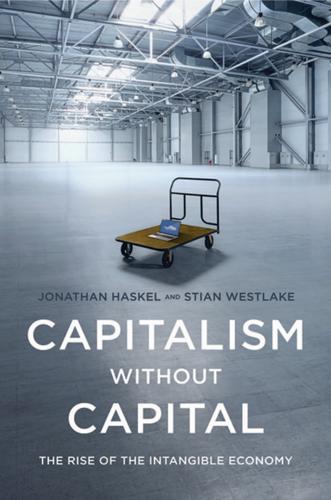
Capitalism Without Capital: The Rise of the Intangible Economy
by
Jonathan Haskel
and
Stian Westlake
Published 7 Nov 2017
When technology, say broadcasting, raises the reach of such workers, their earnings can potentially rise very sharply. The intangible version of this story is that many superstars have privileged access to very valuable scalable intangibles that reap vast rewards: in some cases this is by outright ownership—for example, the tech billionaires who own significant equity stakes in companies they founded; in others, the superstar has special privileges to create more of a certain type of intangible—only J. K. Rowling can write new Harry Potter books, for example. But, of course, most rich people are not stars or tech entrepreneurs; a significant proportion of the very rich are simply senior managers.
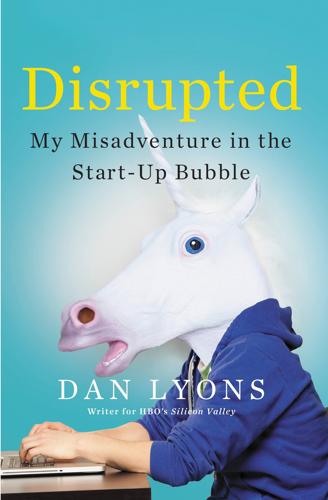
Disrupted: My Misadventure in the Start-Up Bubble
by
Dan Lyons
Published 4 Apr 2016
“The best drug I ever took,” he says, “was philanthropy.” I suspect that opening with a big-name band is also a form of dick measuring. It’s Benioff’s way of saying, “I just spent three hundred thousand dollars to have a band play one song. You know why? Because I can.” The same goes for his philanthropy. Benioff says he’s challenging other tech billionaires to give away as much money as he does. The thing is, a lot of rich tech people do give away a lot of money; they just don’t go around bragging about it. Benioff’s challenge is a form of self-aggrandizement, his way of saying that while others might give away money, Mine is bigger. He wields his philanthropy like a four-foot cock, slapping us all in the face with it.
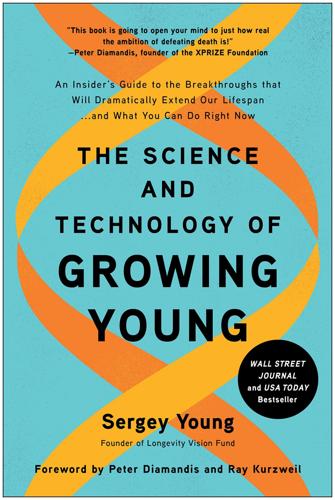
The Science and Technology of Growing Young: An Insider's Guide to the Breakthroughs That Will Dramatically Extend Our Lifespan . . . And What You Can Do Right Now
by
Sergey Young
Published 23 Aug 2021
This event, blessed by Pope Francis, was inspired by the Vatican’s desire to be more progressive, to liven up its historic brand, and to boost its aging “customer base.” As I took my seat in a vast hall, I looked around at the three hundred invited attendees. It was an unusual crowd, to say the least. Black-robed cardinals with bright red sashes and large, dangling crucifixes mingled with well-dressed doctors, tech billionaires, and the occasional celebrity. Over the next three days, we explored fascinating concepts like genetically engineered human beings, stem cell therapy with the potential to rejuvenate the body using its own building blocks, breakthroughs in drug development that may finally win the war on cancer, and the morality of immortality.
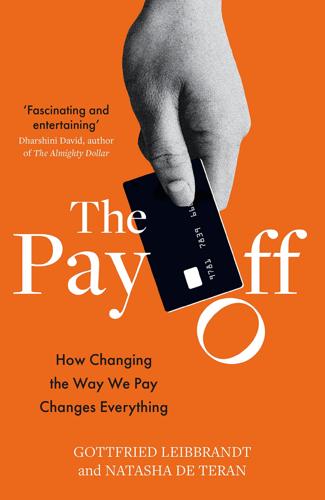
The Pay Off: How Changing the Way We Pay Changes Everything
by
Gottfried Leibbrandt
and
Natasha de Teran
Published 14 Jul 2021
Payment revenue growth is taken from Oliver Wyman: www.oliverwyman.com/content/dam/oliver-wyman/v2/publications/2020/January/Oliver-Wyman-State-of-the-Financial-Services-Industry-2020.pdf For China’s cap on interest rates paid on deposits, see: www.ft.com/content/997c735c-4482-11e8-803a-295c97e6fd0b Figures on Alipay and Tencent deposits at PBoC are taken from: www.pbc.gov.cn/diaochatongjisi/116219/116319/3750274/3750284/index.html Figures on UK credit card debt are taken from: www.theguardian.com/money/2006/sep/27/debt.creditanddebt Chapter 14 For the story on Ubiquity networks, see: N. Vardi (2016). ‘How a tech billionaire’s company misplaced $46.7 million and did not know it’, Forbes, 8 February. For the story on dating-app fraud, see: https://www.interpol.int/en/News-and-Events/News/2021/Investment-fraud-via-dating-apps Chapter 15 For more on early clearing, see: www.frbatlanta.org/-/media/documents/research/publications/economic-review/2008/vol93no4_quinn_roberds.pdf For the Herstatt failure, see: https://academic.oup.com/ehr/article/129/540/1129/2769724 Chapter 16 On the Bank of England’s response to the unveiling of CHAPS, see the Gilbart Lecture delivered by Governor, Sir Edward George, ‘Steady Eddie’, organised by the Chartered Institute of Bankers, 22 October 1996: www.bankofengland.co.uk/-/media/boe/files/quarterly-bulletin/1996/risk-reduction-in-the-payment-and-settlement-systems.pdf Ernst & Young estimate that the capital of the top 200 banks is $5.5 trillion, up from $2 trillion in 2007.
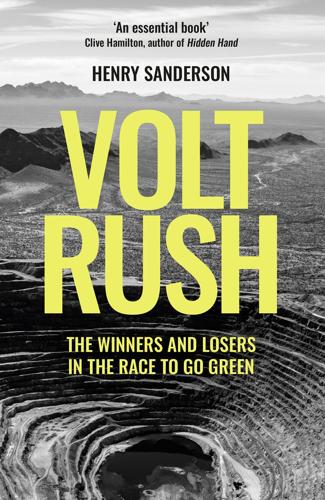
Volt Rush: The Winners and Losers in the Race to Go Green
by
Henry Sanderson
Published 12 Sep 2022
But to me these writers missed a critical point: the importance of an electric car was not in the electronics, or the software, as fancy as these were. The exciting development was the battery – the thousands of cells lying at the bottom of the car, wrapped in an aluminium case. It was improvements in the battery that had made the electric car possible. It meant that I, and not a tech billionaire, could go electric and drive two hundred miles without worrying. It marked a hard-won victory over the internal combustion engine. * In the summer of 1896 Thomas Edison, the man responsible for the first workable lightbulb and the phonograph, was dubbed the ‘Wizard of Menlo Park’. Inventions seemed to flow uninhibited from his brain on an almost daily basis.

Drama Queen: One Autistic Woman and a Life of Unhelpful Labels
by
Sara Gibbs
Published 23 Jun 2021
I used them in long, elaborate fantasies and make-believe worlds, which I would inhabit in such great detail that it sometimes became difficult to distinguish them from reality. The second way I dealt with the chatter was to just say whatever was in my head at all times, whether or not it was appropriate. It is rarely, I’ve learned, appropriate. My words would barge in like tiny unwanted tech billionaires in their mini submarines announcing that they were there to save the day, while getting in the way. They were always there. The nervous fillers of comfortable silences. The blunt deliverers of uncomfortable truths. The valiant diggers of unnecessary holes. My words wouldn’t quit – even when people were screaming at me to stop talking.
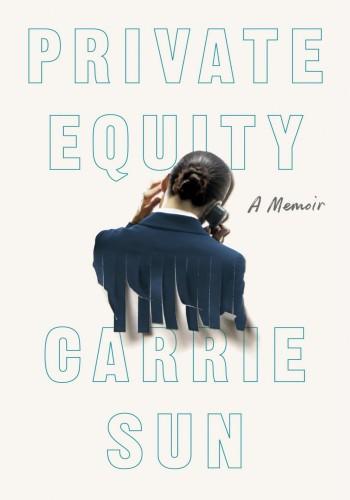
Private Equity: A Memoir
by
Carrie Sun
Published 13 Feb 2024
Fast-forward to today, to Boone, someone for whom speed limits do not apply. After reading about a different man who was approached by a cop on Staten Island, who was then choked to death for allegedly committing a most minor infraction, I realize, now, my fear has come true. An author’s sophomore book is about to be published. A private wealth manager to tech billionaires contacts our office asking Boone to host a book-launch party at his home for the author. Boone is incapable of throwing a party not to Vogue standards, so he hires an event producer. I want to go. I love books. Boone knows this. But I know there is no way Boone will put me on the invite list that includes other rich and famous people who are Boone and Elisabeth’s closest friends.
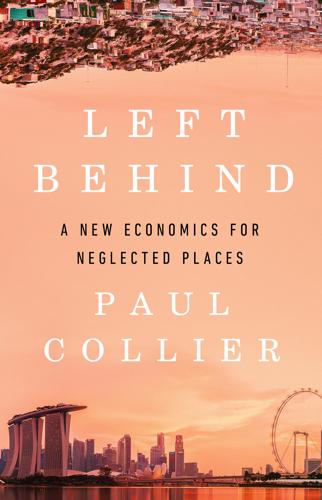
Left Behind
by
Paul Collier
Published 6 Aug 2024
The data are from the Office for National Statistics. 13 T. Besley and T. Persson, ‘Democratic values and institutions’, American Economic Review: Insights 1(1), 2019. 14 M. Seddon, ‘Russia bans largest independent news website Meduza’, Financial Times, 26 January 2023. 15 D. Rushkoff, The Survival of the Richest: Escape Fantasies of the Tech Billionaires (2022). 16 A. Davis, Bankruptcy, Bubbles and Bailouts: The inside history of the Treasury since 1976 (2022) and S. Friedman (2023), ‘Climbing the velvet drainpipe: class background and career progression within the UK civil service’, Journal of Public Administration Research and Theory 33, 563–77.

Enshittification: Why Everything Suddenly Got Worse and What to Do About It
by
Cory Doctorow
Published 6 Oct 2025
This year, 2025, is the year that the Empire struck back. By the end of January, the head of the UK Competition and Markets Authority had been fired by Keir Starmer’s Labour government and replaced with Doug Gurr, the former head of Amazon UK. In the United States, at the 2025 inauguration, Trump spoke from within a decorative semicircle of tech billionaires: Meta CEO Mark Zuckerberg, former Amazon CEO Jeff Bezos, Google CEO Sundar Pichai, Apple CEO Tim Cook, TikTok CEO Shou Zi Chew, and, of course, Elon Musk. These men intervened in many ways on Trump’s behalf. Bezos ordered the editorial board at The Washington Post (which he owns) not to endorse Kamala Harris.
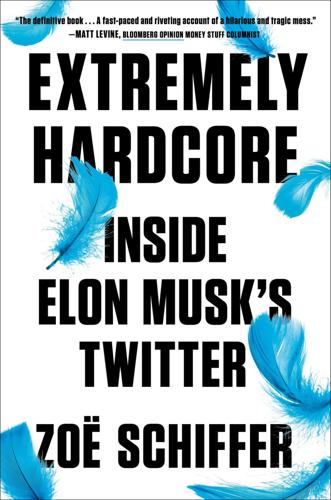
Extremely Hardcore: Inside Elon Musk's Twitter
by
Zoë Schiffer
Published 13 Feb 2024
“Around 2018, The Information reported Facebook has a 700-person PR team,” Scott Galloway, a marketing professor at New York University’s Stern School of Business, wrote on Threads. “Yet one person starched Meta’s reputation clean, and he did it by accident.” Finally, someone had taken the crown of least popular tech billionaire from Mark Zuckerberg. CHAPTER 69 “We Shall Bid Adieu to the Twitter Brand, and Gradually, All the Birds” On Monday, July 24, 2023, a bright orange crane rolled up to Twitter’s San Francisco headquarters and got to work dismantling the prominent Twitter logo. Police arrived—the crane was blocking the street.
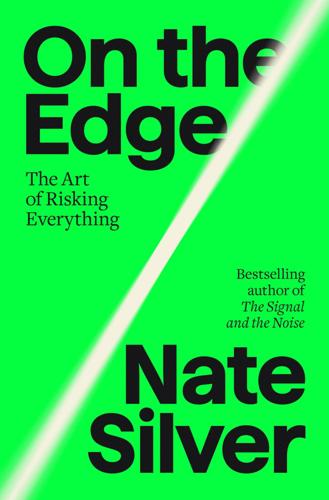
On the Edge: The Art of Risking Everything
by
Nate Silver
Published 12 Aug 2024
America, npr.org/sections/thetwo-way/2016/06/10/481565188/gawker-files-for-bankruptcy-it-faces-140-million-court-penalty. GO TO NOTE REFERENCE IN TEXT secretly been funded: Andrew Ross Sorkin, “Peter Thiel, Tech Billionaire, Reveals Secret War with Gawker,” The New York Times, May 26, 2016, sec. Business, nytimes.com/2016/05/26/business/dealbook/peter-thiel-tech-billionaire-reveals-secret-war-with-gawker.html. GO TO NOTE REFERENCE IN TEXT which outed him: Ryan Holiday, Conspiracy: Peter Thiel, Hulk Hogan, Gawker, and the Anatomy of Intrigue (New York: Portfolio, 2018).
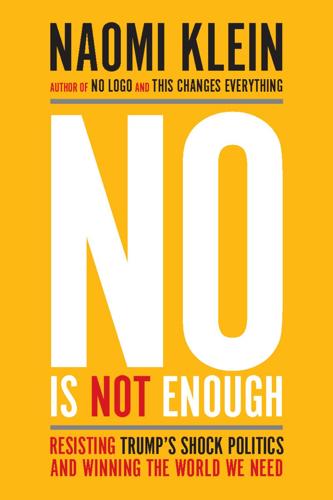
No Is Not Enough: Resisting Trump’s Shock Politics and Winning the World We Need
by
Naomi Klein
Published 12 Jun 2017
Never mind whether Gates has any specific expertise in the areas in question, or that many of the Gates Foundation’s silver-bullet fixes have backfired badly. Gates and his fellow world-saving billionaires are part of what has come to be known as “the Davos class,” named for the annual World Economic Summit held at the top of a mountain in Davos, Switzerland. This is the hyper-connected network of banking and tech billionaires, elected leaders who are cozy with those interests, and Hollywood celebrities who make the whole thing seem unbearably glamorous. At Davos’s 2017 summit, for example, Shakira spoke about her charitable work on education in Colombia, and celebrity chef Jamie Oliver discussed his plan to fight diabetes and obesity.
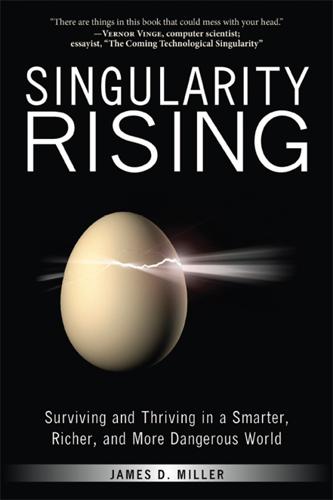
Singularity Rising: Surviving and Thriving in a Smarter, Richer, and More Dangerous World
by
James D. Miller
Published 14 Jun 2012
In the year 2000, Eliezer founded the Singularity Institute for Artificial Intelligence. Although the Institute has garnered less support than Eliezer believes is justified, the best testament to Eliezer’s credibility comes from the quality of the people who have either contributed to the Institute or have spoken at one of its events. These include: •Peter Thiel—self-made tech billionaire and key financier behind Face-book. Donated $1.1 million to the Institute;91 •Ray Kurzweil—famed investor and Singularity writer; •Justin Rattner—Intel’s chief technology officer; •Eric Drexler—the father of nanotechnology; •Peter Norvig—Director of Research at Google; •Aubrey de Grey—leading longevity researcher; •Stephen Wolfram—developer of the computation platform Mathematica; and •Jaan Tallinn—founding engineer of Skype and self-made tech decamillionaire who donated $100,000.92 I also spoke on the economics of the Singularity at the Institute’s 2008 Summit.
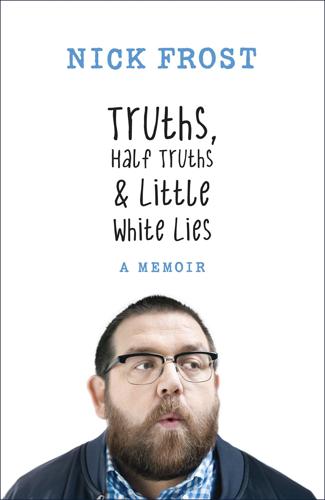
Truths, Half Truths and Little White Lies
by
Nick Frost
Published 7 Oct 2015
I soon lost interest in that car and it was eventually pushed into a river and set alight. Don’t judge me, I’m from Essex. I often wondered what happened to Brett. He got a lot of stick but I liked him. He’d always have an angle and was a pretty savvy businessman, buying boxes of Mars bars at trade and selling to the other kids well above market place. I bet he’s some kind of tech billionaire now. Beal High School also had an ice cream van, a kind of mobile tuck shop if you will, that’d come in at lunchtimes for all the eager fatties. Brett worked out a deal where he would essentially do litter patrol at the end of lunch and get free sweets from the ice cream man. Brett was the only kid I knew that had all of the NatWest Piggies.
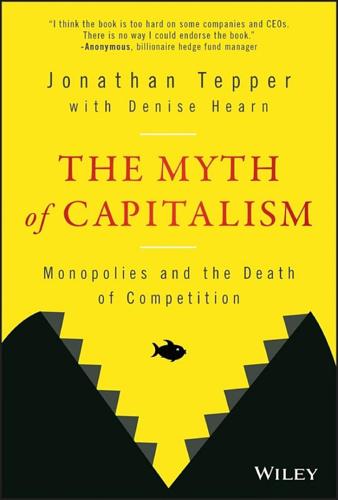
The Myth of Capitalism: Monopolies and the Death of Competition
by
Jonathan Tepper
Published 20 Nov 2018
As the tech monopolies have become the biggest companies in history, their executives are living in another world. Today, the suburb of Atherton in Silicon Valley is now the most expensive postcode in the United States. The homes and estates of the tech titans are rarely visible from the road. The most expensive homes sell for around $30 million while an average home costs over $9 million. Tech billionaires Eric Schmidt, Meg Whitman, and Sheryl Sandberg all have homes here.6 For over a century, California was the embodiment of technological and economic progress. Today, the Golden State suffers the highest level of poverty in the country, even surpassing Mississippi and Alabama. It is also now home to roughly one-third of the nation's welfare recipients, roughly three times its share as a percentage of the population.7 In the old days, the state's tech sector produced industrial jobs that sparked prosperity not only in Silicon Valley, but also in working class towns like San Jose.
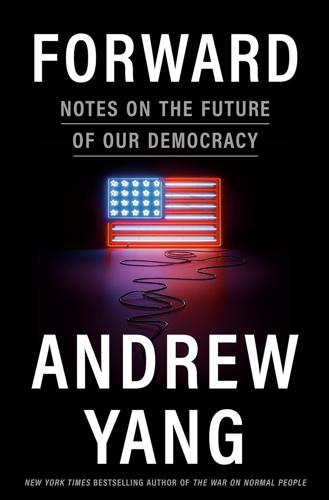
Forward: Notes on the Future of Our Democracy
by
Andrew Yang
Published 15 Nov 2021
The CPB has zero editorial input to the hundreds of local PBS and NPR stations in terms of their programming. It’s possible to provide public financing to local news organizations from afar and let them manage programming independently. In the last decade, another trend in the media has emerged. Big legacy media organizations have been getting gobbled up by tech billionaires. Jeff Bezos owns The Washington Post. Marc Benioff owns Time magazine. Laurene Powell Jobs effectively owns The Atlantic through her foundation. Major legacy publications have become trophy acquisitions for technology titans who don’t like sports. Media ownership is changing whether the public likes it or not; it is better to understand and address it than to pretend that nothing has changed.
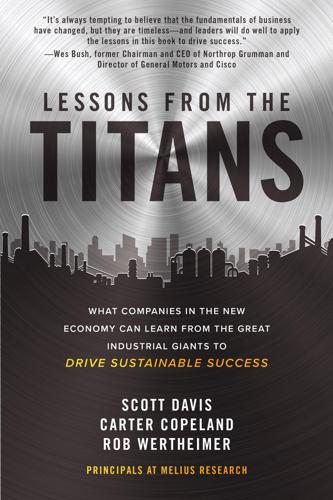
Lessons from the Titans: What Companies in the New Economy Can Learn from the Great Industrial Giants to Drive Sustainable Success
by
Scott Davis
,
Carter Copeland
and
Rob Wertheimer
Published 13 Jul 2020
Facebook has been on Capitol Hill answering to legislators with increasing skepticism. Apple and Google are both facing challenges of operating in a global economy, where the rules are often different and the playing field hardly fair. And there is broad distrust of this new generation of success. Tech billionaires rank down with used car salesmen as related to public trust, and those perceptions will impact government policy for a generation. Industrials have seen this movie already. We could have changed the names above and gone back 20, 40, even 60 years and made the same statements. In nearly every case, there is an industrial company that either solved for one of these problems or failed trying.

American Pain: How a Young Felon and His Ring of Doctors Unleashed America’s Deadliest Drug Epidemic
by
John Temple
Published 28 Sep 2015
It was also time to grow and mature. Time to hire more doctors and staff, create some rules, get serious. The clinic was inhaling $40,000 to $50,000 a day. And Chris believed that $250,000 a week was just scratching the surface. Like the railroad-and-oil tycoons of the nineteenth century, or the tech billionaires of the 1990s, Chris and Derik, of all the random people, had enjoyed perfect, exquisite, history-making timing. They’d stumbled into a Bizarro-world, a window of opportunity in which hard drugs were, for the moment, legal. Because if they weren’t legal, how were Chris and Derik able to conduct their business in broad daylight?

My Life as a Goddess: A Memoir Through (Un)Popular Culture
by
Guy Branum
Published 29 Jul 2018
I didn’t have time to wait for dick.11 A year later, at the end of my first year in law school, I’d become even more adventuresome with my Interent explorations. As we will discuss later in the book, I regularly went into gay chat rooms on AOL. Yes, I know, I am old and un-tech-savvy. Half the people I went to college with became tech billionaires, and I was using an AOL CD to hit on guys in Australia. Also, I always went into said chat rooms with a fake identity. If I revealed even the smallest fact about myself, someone would clearly piece together my real identity and immediately call my mother to tell her that I wanted to fuck in the poop hole.
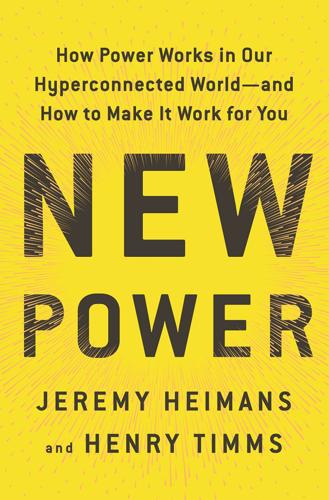
New Power: How Power Works in Our Hyperconnected World--And How to Make It Work for You
by
Jeremy Heimans
and
Henry Timms
Published 2 Apr 2018
A Bentley University survey showed that 66 percent of millennials report they want to start their own businesses (of course, only a small fraction of that number actually do, and the rest are the people whose founder-like expectations are upending the traditional workplace). More broadly, even if we don’t dream of becoming a tech billionaire, we are now operating in a world where, across most facets of our lives, we’re having founder-like experiences. As we are more and more the creators of our own myths, leaders of our own communities, stars of our own shows. New power dynamics make the desire for the “founder feeling” much more widespread.
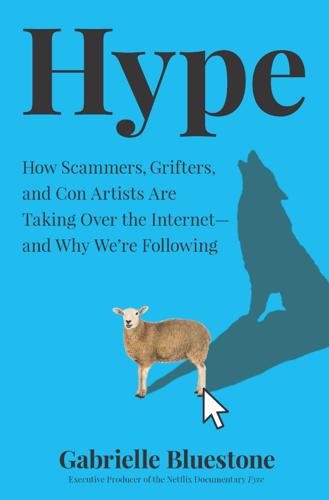
Hype: How Scammers, Grifters, and Con Artists Are Taking Over the Internet―and Why We're Following
by
Gabrielle Bluestone
Published 5 Apr 2021
Critical or ‘snarky’ coverage of the tech world was deemed ‘uncurious’ (their word), as our metrics showed that our Musk-loving readers responded better to positive stories about big tech.” Crosbie, who was laid off from the site in 2017, eventually ended up at Splinter, part of the Gawker network of websites that tech billionaire Peter Thiel semi-successfully sued out of existence in 2016, the culmination of a Count of Monte Cristo–style revenge plan that apparently stemmed from his deep-seated grudge over the site’s critical coverage of his business ventures. After Splinter finally folded in 2019, Crosbie and his coworkers launched Discourse, which is entirely worker-owned and currently thriving on Substack.
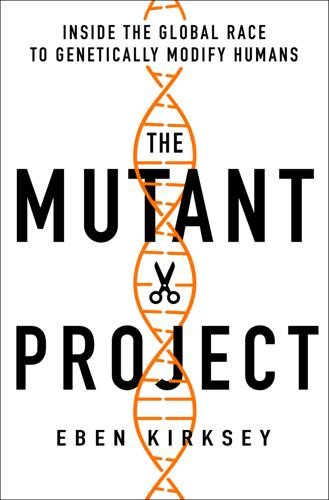
The Mutant Project: Inside the Global Race to Genetically Modify Humans
by
Eben Kirksey
Published 10 Nov 2020
So I don’t want to get in trouble.’ President Obama wrote her an absentee note on White House stationery. It says, ‘Please excuse Emily from school today, she was with me.’” Farther down the hall of fame was a picture of an older Emily Whitehead, this time with Lady Gaga during a party at the home of Sean Parker, the tech billionaire who was supporting this experimental work. These success stories were part of what gave the Recombinant Advisory Committee confidence in Penn Medicine’s proposal to forge ahead with new gene therapies in humans. With a fresh influx of capital from Sean Parker and a license to use CRISPR, it seemed like a cure for cancer was within reach.
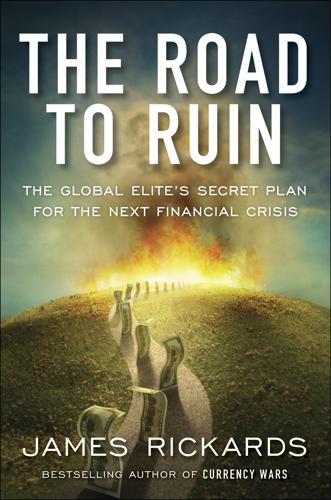
The Road to Ruin: The Global Elites' Secret Plan for the Next Financial Crisis
by
James Rickards
Published 15 Nov 2016
Large banks like Goldman Sachs will make markets in those SDR bonds and write derivative contracts in SDRs for hedging. SDR bank deposits will expand in the same way that eurodollar deposits expanded in the 1960s. Imperceptibly, the dollar will become just another local currency. Important transactions will be counted in SDRs. World money will arrive on tiptoe. Hedge fund and high-tech billionaires will discover they are billionaires in dollars only. The dollar itself will be devalued against SDRs, controlled by a small clique of countries beyond the reach of the billionaires and their bankers. World money means the dollar is worth what the G20 and IMF decide. Only gold is immune. World Taxation For a decade at the start of my career, I was international tax counsel to Citibank, then the world’s most powerful private bank.
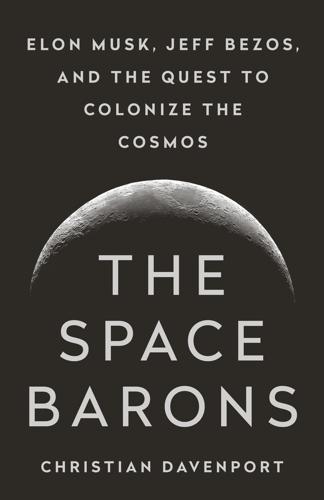
The Space Barons: Elon Musk, Jeff Bezos, and the Quest to Colonize the Cosmos
by
Christian Davenport
Published 20 Mar 2018
Instead, the Bransons huddled around the newest member of their family, Eva-Deia, an innocent cherub with bright eyes and blond hair, and baptized the spaceship with the baby’s milk bottle. IN THE MONTHS that followed, Musk and Bezos started to play nice, at least in public. Their Twitter spat had touched off an irresistible media frenzy that pitted the pair against each other—a pair of tech billionaires fighting for cosmic domination—a made-for-large-font headline neither wanted. For someone who cultivated his image as meticulously as Bezos, it wasn’t dignified even to be perceived as feuding with Musk. When competitors came after Amazon, it only drove him to want to succeed even more. That was as true in the world of online retail as it was in space.
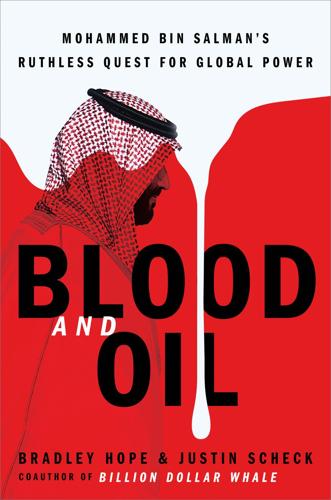
Blood and Oil: Mohammed Bin Salman's Ruthless Quest for Global Power
by
Bradley Hope
and
Justin Scheck
Published 14 Sep 2020
Many commentators delighted in echoes of today’s Saudi Arabia in the film’s story: It’s about a young king who must decide whether to hide his jungle kingdom from, or engage with, the outside world. That was one side of a frenzied 2018 for Mohammed, a year in which he would push through social and economic transformation plans at a dizzying pace and in full public view. In the coming months he would meet with presidents, CEOs, and tech billionaires including Elon Musk and Bill Gates, publicly proclaiming an open and innovative future for Saudi Arabia. He would make massive commitments to virtual reality and solar power and cutting-edge urban planning. “The most influential Arab leader. Transforming the world at 32,” blared the cover of an unfamiliar magazine titled The New Kingdom (priced at $13.99) that showed up on newsstands across the United States just ahead of the prince’s visit.
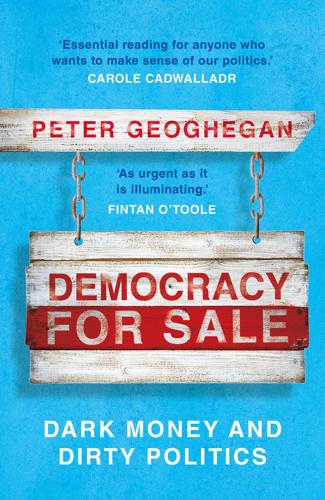
Democracy for Sale: Dark Money and Dirty Politics
by
Peter Geoghegan
Published 2 Jan 2020
But there are also reasons to be, if not quite cheerful, then at least hopeful. Anger at the intrusive role of tech companies in our everyday lives is growing. In September 2019, activists with loudhailers and hi-vis jackets targeted Palantir, a data-mining defence contractor co-founded by a controversial Trump-supporting tech billionaire.6 Two months later, roughly 200 Google employees and their supporters demonstrated outside of their own company’s San Francisco offices after the tech giant dismissed two employees – ironically, for organising protests against the tech giant’s own behaviour including its work on a project to build a censored search engine for China and cloud services for the fossil fuel industry.7 And after the Cambridge Analytica scandal broke in 2018, a group of ‘Raging Grannies’ demonstrated outside Facebook’s sprawling, Frank Gehry-designed head office in Silicon Valley, declaring that “privacy should be the default setting”.
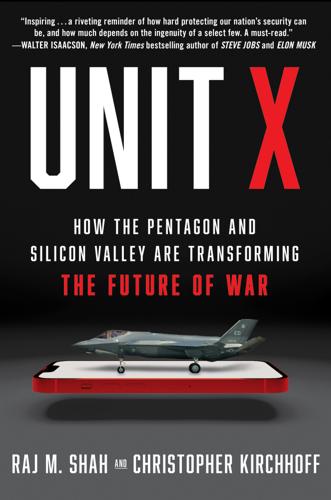
Unit X: How the Pentagon and Silicon Valley Are Transforming the Future of War
by
Raj M. Shah
and
Christopher Kirchhoff
Published 8 Jul 2024
See also: Chris Buckley, “China’s Top Airship Scientist Promoted Program to Watch the World from Above,” New York Times, February 13, 2023, https://www.nytimes.com/2023/02/13/world/asia/china-spy-balloon.html. Elon Musk now had more control: Adam Satariano et al., “Elon Musk’s Unmatched Power in the Stars: The tech billionaire has become the dominant power in satellite internet technology. The ways he is wielding that influence are raising global alarms,” New York Times, June 28, 2023, https://www.nytimes.com/interactive/2023/07/28/business/starlink.html. Refused to extend Starlink’s capabilities: Victoria Kim, “Elon Musk Acknowledges Withholding Satellite Service to Thwart Ukrainian Attack: The Starlink satellite internet service, which is operated by Mr.
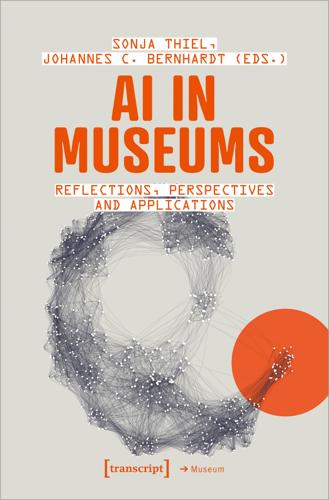
AI in Museums: Reflections, Perspectives and Applications
by
Sonja Thiel
and
Johannes C. Bernhardt
Published 31 Dec 2023
This change needs to be shaped actively by means of critical reflection, new perspectives, and concrete experiments—if the present volume can provide impulses and inspirations for this, its purpose will be more than fulfilled. Introduction Johannes C. Bernhardt and Sonja Thiel Dan Brown opens his 2017 novel Origin with an enigmatic scene: the main character, Robert Langdon, visits the Guggenheim Museum Bilbao to attend a spectacular revelation on the origins of humanity by the tech billionaire Edmond Kirsch. Upon arrival, Langdon is given a headset developed by Kirsch, the use of which is mandatory for all participants in the event in order to experience a personalized tour of the museum. After putting it on, the artificial intelligence Winston introduces itself, welcomes Langdon, and explains Kirsch’s idea: ‘He designed this system specifically for museums, in hopes of replacing group tours, which he despises.
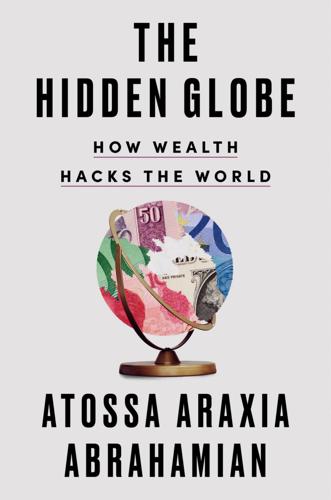
The Hidden Globe: How Wealth Hacks the World
by
Atossa Araxia Abrahamian
Published 7 Oct 2024
But the scandals keep piling up: the most powerful people in Malaysia, Kazakhstan, Russia, and Ukraine have all turned out to have lakeside pieds-à-terre, if not for themselves then for a trust or a fund or an investment vehicle linked to an entity connected to their person. More recently, a Texan tech billionaire named Robert Brockman was indicted in the United States for using a Geneva bank (among others) to evade a record-breaking $2 billion in U.S. taxes. Public Eye counted 13,600 shell companies in the city of Geneva, some mere letterboxes, some nominally staffed, many acting as portals through which clients could siphon money farther and farther offshore.

Mood Machine: The Rise of Spotify and the Costs of the Perfect Playlist
by
Liz Pelly
Published 7 Jan 2025
The latter list was topped by the Spotify cofounders, while the former included UMG president Lucian Grainge, whose compensation was $49.7 million for 2022, and reportedly $128 million for 2023.14 Lorentzon has avoided becoming a public figure to the same extent that Daniel Ek has, but he has become more wealthy from Spotify than anyone else, and maintains more voting power than any other shareholder. A 2023 profile in the Swedish men’s magazine King called the fifty-four-year-old Sweden’s richest tech billionaire. As of this writing, he is worth $7.7 billion. His days are spent exercising and eating lunches with inspiring people, the profile explained; he is invested in a new fragrance company and, with Ek, in a health-tech start-up, but has not actively contributed to Spotify’s daily operations in over five years.
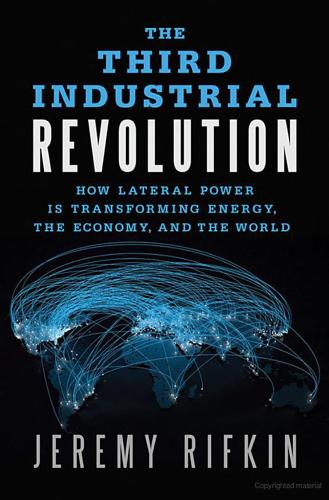
The Third Industrial Revolution: How Lateral Power Is Transforming Energy, the Economy, and the World
by
Jeremy Rifkin
Published 27 Sep 2011
He points out that in 1982, 38 percent of the wealthiest Americans in the Forbes 400 came out of the oil industry and related manufacturing industries, while only 12 percent came out of technology and finance. By 2006, the tables had turned, with 36 percent of the richest Americans coming out of tech and finance, and only 12 percent from oil and related manufacturing.16 Many of the high-tech billionaires, like the founders of Google, Larry Page and Sergey Brin, are transforming their facilities into low-carbon emission operations, and investing millions of dollars in the new distributed renewable energy technologies of the Third Industrial Revolution. While still the most powerful lobbying force in Washington, the old energy lobby—and the Second Industrial Revolution industries surrounding it—may be on its last legs.
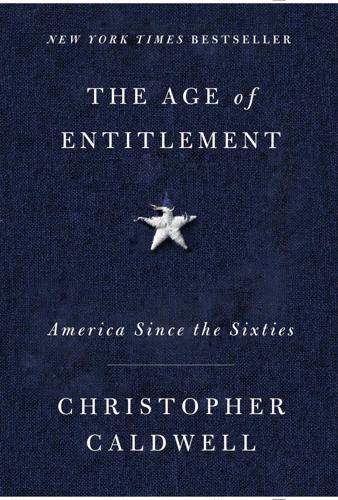
The Age of Entitlement: America Since the Sixties
by
Christopher Caldwell
Published 21 Jan 2020
It had moved its staff of 150 into the old headquarters of B’nai B’rith in the heart of Washington, D.C., midway between Dupont Circle and the White House. In a neighborhood where any major lobbying firm might consider it a status symbol to rent a floor, the Human Rights Campaign owned an entire nine-story, two-wing building. The investors George Soros and Michael Bloomberg, tech billionaires Bill Gates and Jeff Bezos, entertainers David Geffen and Brad Pitt, Republican financiers Paul Singer and Seth Klarman—all backed gay marriage with millions in donations. Support for gay marriage in Silicon Valley was almost unanimous. Google’s employees gave 96 percent of their campaign contributions, and Apple’s 94 percent, to oppose California’s anti–gay marriage Proposition 8.
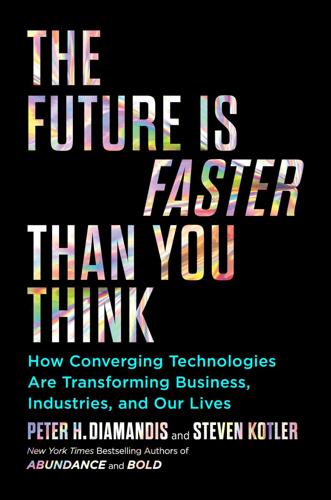
The Future Is Faster Than You Think: How Converging Technologies Are Transforming Business, Industries, and Our Lives
by
Peter H. Diamandis
and
Steven Kotler
Published 28 Jan 2020
$8.5 trillion in assets: Data aggregated from this wikipedia article: https://en.wikipedia.org/wiki/Sovereign_wealth_fund, by way of the Sovereign Wealth Fund Institute database at https://www.swfinstitute.org. forty-two SWF deals valued at around $16.2 billion: Claire Milhench, “Sovereign Investors Hunt for ‘Unicorns’ in Silicon Valley,” Reuters, May 11, 2017. “I totally believe [in] this concept,”: Sam Shead, “The Japanese Tech Billionaire Behind Softbank Thinks the ‘Singularity’ Will Occur Within 30 Years,” Business Insider, February 27, 2017. See: https://www.businessinsider.com/softbank-ceo-masayoshi-son-thinks-singularity-will-occur-within-30-years-2017-2. The Vision Fund got started: “Masayoshi Son Prepares to Unleash His Second $100bn Tech Fund,” Economist, March 23, 2019.
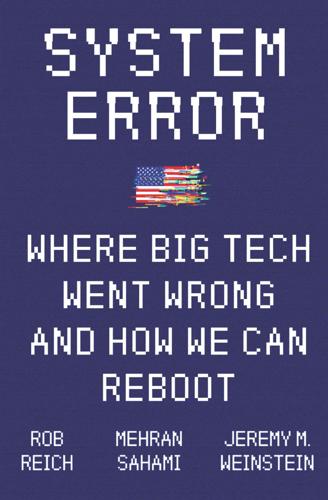
System Error: Where Big Tech Went Wrong and How We Can Reboot
by
Rob Reich
,
Mehran Sahami
and
Jeremy M. Weinstein
Published 6 Sep 2021
Innovation and disruption were the buzzwords on campus, and our students broadcasted an almost utopian view that the old ways of doing things were broken and technology was the all-powerful solution: it could end poverty, fix racism, equalize opportunity, strengthen democracy, and even help topple authoritarian regimes. “Every year at new-student orientation,” one of our students told us enthusiastically, “we bring in some tech billionaire who is held up as the paragon of what you can achieve and that that’s the life you should want.” The former president of the university was heard to say that government was incompetent and the idea of encouraging any student to go into government service in order to make a difference was “ridiculous.”
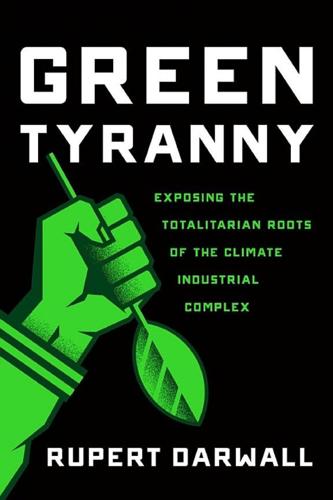
Green Tyranny: Exposing the Totalitarian Roots of the Climate Industrial Complex
by
Rupert Darwall
Published 2 Oct 2017
Promoting itself as a model for America, it is self-evidently impossible for all the other forty-seven contiguous states to import one-third of their electricity from each other. California also led the way in being the crucible of America’s Climate Industrial Complex. In the 1940s, the Austrian economist Joseph Schumpeter argued that cultural and sociological factors would lead to the demise of capitalism. The fruits of capitalism harvested by tech billionaires, hedge fund managers, and foundation executives were poured into the 2010 fight to defeat Proposition 23, which had attempted to limit the economic damage of California’s renewable targets. With the nation’s largest number of billionaires and its highest poverty rate (taking into account housing and other benefits), postindustrial California began to resemble a precapitalist society (Chapter 18).
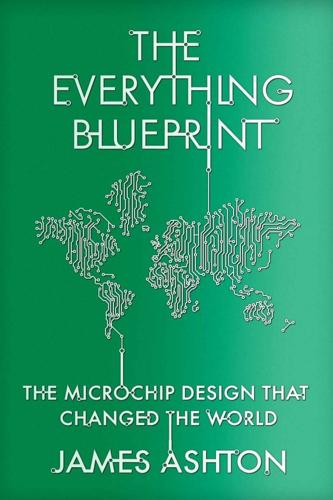
The Everything Blueprint: The Microchip Design That Changed the World
by
James Ashton
Published 11 May 2023
Microchips are a vital staple that feed progress. No wonder Yun Jong-yong, the one-time vice chairman of Samsung Electronics, one of the world’s largest chip producers, labelled them as ‘industrial rice’. They have borne the internet to ubiquity, generating untold wealth – and not just for the tech billionaires whose social media software skates over chip-laden hardware. Over decades microchips have catalysed a sustained increase in productivity. Today, they are a $550bn-a-year industry that drives earnings across manufacturing, ecommerce and transport. In fact, every industrial sector has been transformed by technology with chips at its heart.
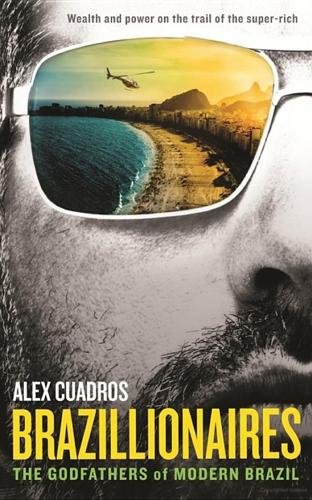
Brazillionaires: The Godfathers of Modern Brazil
by
Alex Cuadros
Published 1 Jun 2016
“You’re welcome for the industrial revolution,” he said. Once a reader accused me of prejudice against entrepreneurs. Wondering about this, I looked for counternarratives to the stories I’d been pursuing. I wanted to find someone who’d gotten rich by innovating. I wouldn’t find this person in beer. Brazil’s only tech billionaire is Eduardo Saverin, who got rich because of his lucky decision to put money into Facebook before anyone else. As far as I could tell, the only Brazilian billionaire who ever created anything new was Walther Moreira Salles. Already rich as a banker in the sixties, he backed an American venture to extract a rare element known as niobium from a deposit in Minas Gerais.
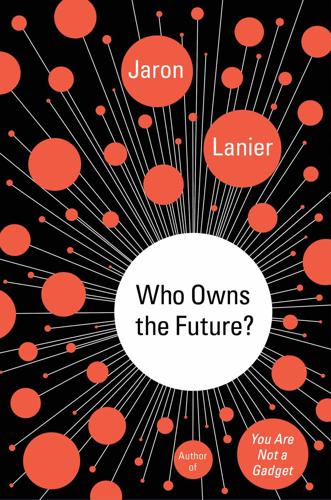
Who Owns the Future?
by
Jaron Lanier
Published 6 May 2013
Broadly speaking, that narrative counterpoises the inclusiveness, quickness, and sophistication of online social processes against the sluggish, exclusive club of old-fashioned government or corporate power. It’s a narrative that unites activists in the Arab Spring with Chinese and Iranian online dissidents, and with tweeters in the United States, Pirate Parties in Europe, nouveau high-tech billionaires, and “folk hero” rogue outfits like WikiLeaks. That particular idea of revolution misses the point about how power in human affairs really works. It cedes the future of economics and places the entire burden on politics. In our digital revolution, we might depose an old sort of dysfunctional center of power only to erect a new one that is equally dysfunctional.

Lonely Planet Cape Town & the Garden Route (Travel Guide)
by
Lucy Corne
Published 1 Sep 2015
Many township tours also start at the museum, where the history of the apartheid-era Pass laws, which regulated where people were allowed to live based on their race, are explained. 1Sights District Six Museum Cape Town Science CentreMUSEUM ( MAP GOOGLE MAP ; %021-300 3200; www.ctsc.org.za; 370B Main Rd, Observatory; admission R40; h9am-4.30pm Mon-Sat, 10am-4.30pm Sun; p; dObservatory) Occupying a rare example of the work of modernist architect Max Policansky, this is a great place to bring kids for attractions such as the giant gyroscope (R5 extra) and tons of Lego. There's also a replica of the Soyuz capsule that returned South African tech billionaire Mark Shuttleworth to earth after his trip to the International Space Station. Heart of Cape Town MuseumMUSEUM ( MAP GOOGLE MAP ; %021-404 1967; www.heartofcapetown.co.za; Old Main Bldg, Groote Schuur Hospital, Main Rd, Observatory; overseas visitors R200, South African adult/student R100/50; hguided tours 9am, 11am, 1pm & 3pm; p; dObservatory) Booking a tour is the only way you can see the very theatre in Groote Schuur Hospital where history was made in 1967 when Dr Christiaan Barnard and his team carried out the world's first successful heart transplant operation (sadly, the recipient died a few days later).
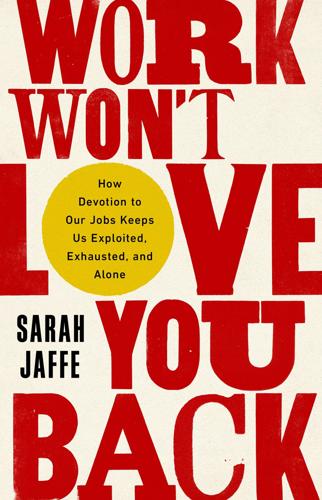
Work Won't Love You Back: How Devotion to Our Jobs Keeps Us Exploited, Exhausted, and Alone
by
Sarah Jaffe
Published 26 Jan 2021
Yet thinking of those users—ourselves—as workers would require us to understand the “social” part of social media as requiring valuable skills as well, something that tech companies resolutely refuse to do. And, of course, it’s in their interest not to—if they had to pay for the value we create for them, those tech billionaires wouldn’t be billionaires. 26 THE CREATIVE WORK OF THE TECHIES, THEIR MUCH-VAUNTED “INNOVATION ,” is the thing that is celebrated in these flexible, toy-filled workplaces, but this emphasis belies the fact that most programming work is, frankly, boring. It’s grueling, repetitive, requiring focus and patience—and often plenty of cutting and pasting or working from pre-prepared kits.
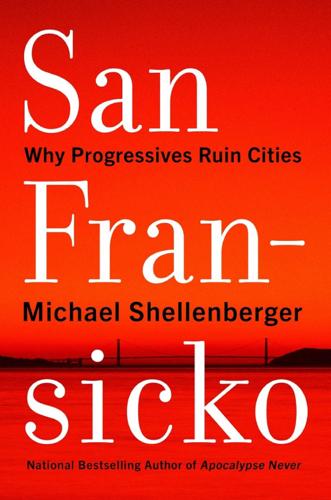
San Fransicko: Why Progressives Ruin Cities
by
Michael Shellenberger
Published 11 Oct 2021
Phil Matier and Andy Ross, “SF Voters All in Favor of New Tax to Help Homeless—Until They See the Cost,” San Francisco Chronicle, September 12, 2018, www.sfchronicle.com. 22. Andy Bosselman, “Proposition C: Is It the Right Move for Homelessness Now?” SF Curbed, October 25, 2018, www.sf.curbed.com. 23. Shirin Ghaffary, “Here’s Why Tech Billionaires Are Fighting over San Francisco’s Prop C Ballot Measure,” Vox, October 27, 2018, www.vox.com. 24. Jennifer Friedenbach, interview by the author, January 13, 2021. 25. Trisha Thadani, “A Ticket out of Town,” San Francisco Chronicle, July 29, 2019, www.sfchronicle.com. 26. “For SF homeless residents ‘rapid rehousing’ means leaving the city (Via SF Public Press),” Mission Local, March 6, 2018, www.missionlocal.org. 27.

Your Face Belongs to Us: A Secretive Startup's Quest to End Privacy as We Know It
by
Kashmir Hill
Published 19 Sep 2023
GO TO NOTE REFERENCE IN TEXT “I think they should”: Connie Loizos, “Peter Thiel on Valleywag; It’s the ‘Silicon Valley Equivalent of Al Qaeda,’ ” Venture Capital Journal, May 18, 2009. GO TO NOTE REFERENCE IN TEXT The billionaire had been secretly: Andrew Ross Sorkin, “Peter Thiel, Tech Billionaire, Reveals Secret War with Gawker,” New York Times, May 25, 2016. GO TO NOTE REFERENCE IN TEXT it would settle: Jonathan Randles, “Right-Wing Blogger Charles Johnson Settles with Gawker Media,” Wall Street Journal, August 16, 2018. GO TO NOTE REFERENCE IN TEXT seemed to lend credence: In his 2009 Cato Unbound essay, Thiel wrote that he stood against the “inevitability of death of every individual.”
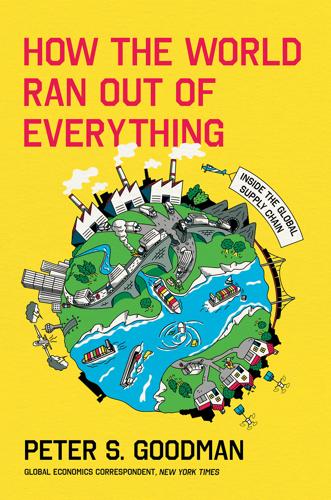
How the World Ran Out of Everything
by
Peter S. Goodman
Published 11 Jun 2024
That fact was forcing Charter to confront the once unthinkable fate that had befallen many of his neighbors, along with more than half a million other American ranchers in recent decades: selling off his herd, and perhaps handing the land to a developer, turning another working Western expanse into an exclusive getaway for a tech billionaire or master of finance. “We are contemplating getting out,” Charter told me, his voice catching as he choked back tears. “Basically, all my life, our percentage that we get of the consumer dollar has just been going down. In the last couple of years, it’s just gotten to the point of ridiculousness.”
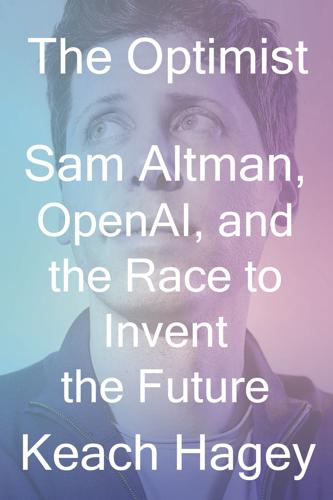
The Optimist: Sam Altman, OpenAI, and the Race to Invent the Future
by
Keach Hagey
Published 19 May 2025
CHAPTER 17PROMETHEUS UNBOUND 1.John Casey, “Sam Altman on AI, Queerness, and Being Grateful for the Journey He’s On,” The Advocate, March 1, 2024. 2.Ibid. 3.Bob Woodward, War (New York: Simon & Schuster, 2024), 180. 4.Tim Alberta, “Dean Philips Has a Warning for Democrats,” The Atlantic, October 27, 2023. 5.Sam Altman, “this is interesting, and I think close to what the majority of voters actually want: a reasonable, centrist candidate running on 1) a message of a strong economy and increasing affordability 2) a focus on safety and 3) generational change. curious to see what happens.,” X, October 27, 2023. 6.Theodore Schleifer, “President of the Biden-Skeptic Billionaires,” Puck, November 7, 2023. 7.Sam Altman, “fk it why not 8,” X, February 15, 2024. 8.Lex Fridman, “Transcript for Sam Altman: OpenAI, GPT-5, Sora, Board Saga, Elon Musk, Ilya, Power & AGI | Lex Fridman Podcast #419,” LexFridman.com, March 17, 2024. 9.Sam Altman, “there are some great parts about the AI EO, but as the govt implements it, it will be important not to slow down innovation by smaller companies/research teams. I am pro-regulation on frontier systems, which is what openai has been calling for, and against regulatory capture,” X, November 2, 2023. 10.Brendan Bordelon, “Think Tank Tied to Tech Billionaires Played Key Role in Biden’s AI Order,” Politico, December 16, 2023. 11.Brendan Bordelon, “The Law Firm Acting as OpenAI’s Sherpa in Washington,” Politico, September 12, 2023. 12.Justin Wise, “OpenAI Hires Akin Gump to Lobby in DC on ‘Hard’ Regulation Task,” Bloomberg Law, December 26, 2023. 13.Cat Zakrewski, “This Agency Is Tasked with Keeping AI Safe.
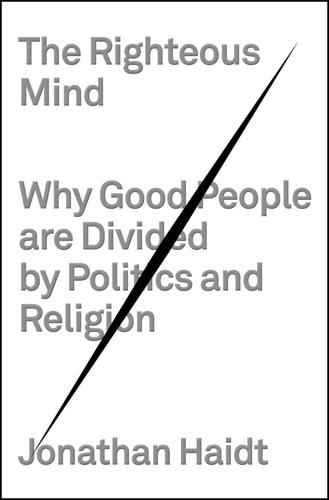
The Righteous Mind: Why Good People Are Divided by Politics and Religion
by
Jonathan Haidt
Published 13 Mar 2012
The rich and powerful want to preserve and conserve; the peasants and workers want to change things (or at least they would if their consciousness could be raised and they could see their self-interest properly, said the Marxists). But even though social class may once have been a good predictor of ideology, that link has been largely broken in modern times, when the rich go both ways (industrialists mostly right, tech billionaires mostly left) and so do the poor (rural poor mostly right, urban poor mostly left). And when political scientists looked into it, they found that self-interest does a remarkably poor job of predicting political attitudes.9 So for most of the late twentieth century, political scientists embraced blank-slate theories in which people soaked up the ideology of their parents or the TV programs they watched.10 Some political scientists even said that most people were so confused about political issues that they had no real ideology at all.11 But then came the studies of twins.
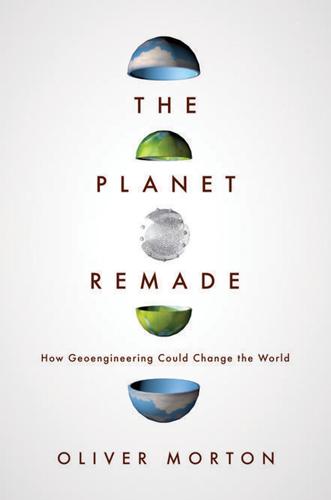
The Planet Remade: How Geoengineering Could Change the World
by
Oliver Morton
Published 26 Sep 2015
This stringing together of speculations is obviously intended to make solar geoengineering look like a somewhat attractive possibility. What, though, of the beads on this string? Considered in isolation, independent of the way that they are strung together, are they plausible? To a large extent, I think they are. Would it be feasible for a few small states with airfields in the tropics and a tech-billionaire benefactor to try and put together a small aerosol geoengineering effort? Yes. The Aurora study discussed in Chapter Four argues that a much larger effort could be undertaken for about $2 billion a year. A first-generation system scaled to lift only tens of thousands of tonnes in its early years could be a lot cheaper.
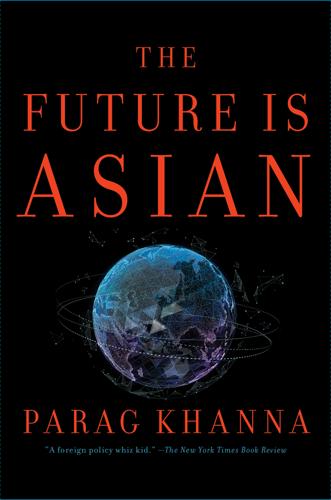
The Future Is Asian
by
Parag Khanna
Published 5 Feb 2019
Azim Premji, the chairman of Wipro, has given $8 billion to charities, and his eponymous foundation focuses primarily on improving rural education. Tencent cofounder Charles Chen left the company in 2013 to devote himself full-time to a $320 million fund for transformational ideas in education and gave $300 million to upgrade the liberal-arts-focused Wuhan College. This new vanguard of Chinese tech billionaires also has the advantage of deploying the very technologies that created their wealth. Both Alibaba’s and Tencent’s foundations have set up websites for the donation of discarded mobile phones and desktop computers, together raising hundreds of millions of dollars for local technology distribution programs.
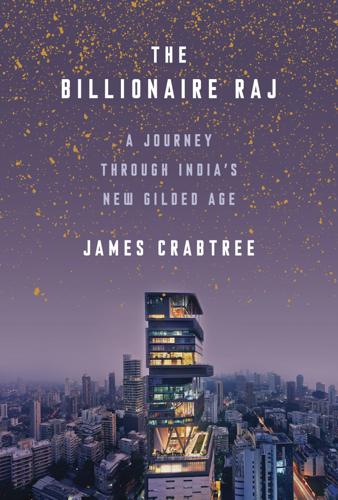
The Billionaire Raj: A Journey Through India's New Gilded Age
by
James Crabtree
Published 2 Jul 2018
Alongside a handful of other big IT businesses, it helped to craft a new image of India as a land of pioneering start-ups and vast call centers. Narayana Murthy and Nandan Nilekani, the company’s best-known cofounders, were admired as models of social mobility and ethical practice, as well as being among India’s first tech billionaires. It was a throwaway phrase by Nilekani—“Tom, the playing field is being levelled”—that inspired American journalist Thomas Friedman to write The World Is Flat, his breathless 2005 opus hailing a new era of global capitalism.20 Infosys’s successes encouraged a new generation too. “To be successful in commerce here, when I was growing up, you really had to be born into an industrial family,” Meera Sanyal, the former India head of Royal Bank of Scotland, once told me.

Nothing Personal: My Secret Life in the Dating App Inferno
by
Nancy Jo Sales
Published 17 May 2021
The story succeeded in being a love letter to Rad, even though it included an exclusive report on how he had just been fired as CEO of his own company, in part due to a sexual harassment lawsuit concerning his best friend, then Tinder chief marketing officer Justin Mateen, and his former vice president of marketing, Whitney Wolfe. The Forbes piece mentioned Rad’s “military-grade $115,000 Mercedes G Class wagon” and his socialite girlfriend, whom he had allegedly met on Tinder: “In case you’re wondering about the caliber of Tinder users, yes, Rad met [tech billionaire Michael] Dell’s daughter Alexa on Tinder.” It made much of Tinder’s estimated worth, allegedly “somewhere between $1 billion and $1.5 billion.” But it didn’t talk about the sexual harassment women were experiencing on the app, or the graphic images they were receiving, or the stories which had already come out about Warriena Wright, the New Zealand woman who fell to her death on a Tinder date that same year.
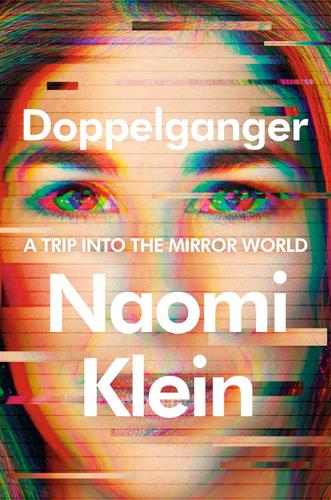
Doppelganger: A Trip Into the Mirror World
by
Naomi Klein
Published 11 Sep 2023
“There has been a distinct warming up to human-less, contactless technology,” she said, adding, rather chillingly, “Humans are biohazards, machines are not.” This was during that first devastating wave—before we could get good masks, let alone vaccines, back when staying away from one another was pretty much the only tool we had to stop the spread of a virus we barely understood. But the former Google CEO Eric Schmidt and other tech billionaires seized on those stop-gap emergency measures to push for more permanent changes that would represent huge profit-making opportunities for their sector—everything from moving large parts of education permanently online to creating so-called smart cities, which would radically increase the surveillance of daily life.
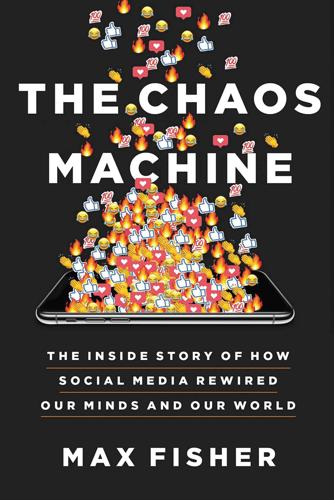
The Chaos Machine: The Inside Story of How Social Media Rewired Our Minds and Our World
by
Max Fisher
Published 5 Sep 2022
Horowitz credited the strategy to his hero Andy Grove, the former Intel chief. He’d adapted the term “wartime CEO” from a line in The Godfather (Tom Hagen: “Mike, why am I out?” Michael Corleone: “You’re not a wartime consigliere”), which he reproduced in his post alongside a rap lyric, part of his campaign to rebrand tech billionaires as the new counterculture: hard-edged badasses in V-neck sweaters. He drew his cachet from Andreessen Horowitz, an investment firm he and Netscape founder Marc Andreessen had started in 2009. (Andreessen’s mentor, John Doerr, had himself been mentored by Grove—one more example of the Valley’s distorting insularity.)

Make Your Own Job: How the Entrepreneurial Work Ethic Exhausted America
by
Erik Baker
Published 13 Jan 2025
It glorified the industrial vanguard—those wealthy business leaders bringing new products and services to market—but also masqueraded as a survival strategy for the most disenfranchised members of the working class. Our image of “the entrepreneur” is still dominated by two antipodal figures: the tech billionaire and the gig worker using that billionaire’s app to scrape out an income. It is for this reason that the story of the entrepreneurial work ethic and its long career can help us make better sense of the broken culture of work in the contemporary United States. Here, too, there is contradiction.
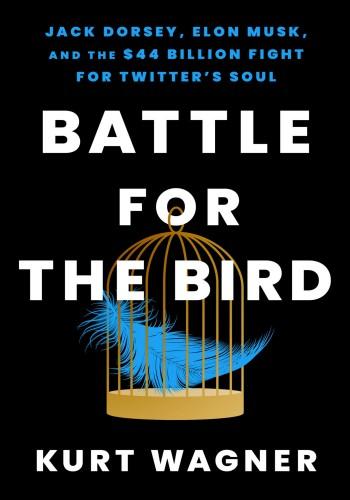
Battle for the Bird: Jack Dorsey, Elon Musk, and the $44 Billion Fight for Twitter's Soul
by
Kurt Wagner
Published 20 Feb 2024
“Elon—everyone excited about prospect of you being involved and on board,” Durban wrote to the group when he made the intros. “Next step is for you to chat w three of them so we can move this forward quickly. Maybe we can get this done next few days.” Taylor was new to his role as Twitter’s chairman, but dealing with eccentric tech billionaires was old hat for him by the time Musk reached out. Taylor had walked a well-trodden path to the top of the tech industry: undergrad and grad school at Stanford, where he studied computer science, and then an early job building products at Google, including Google Maps. Then he struck out on his own to build a social networking startup called FriendFeed.
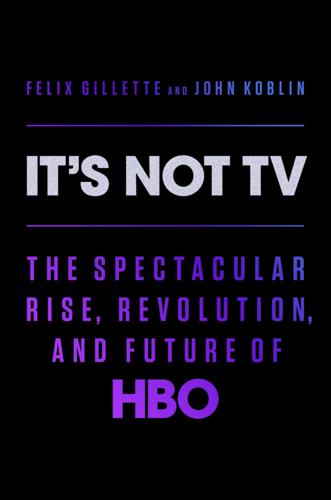
It's Not TV: The Spectacular Rise, Revolution, and Future of HBO
by
Felix Gillette
and
John Koblin
Published 1 Nov 2022
Everywhere he looks there is a maze of shifting opportunities, hazards, mean-spirited “brogrammers,” and greediness masquerading as virtue. It’s a world in which his fate—and everybody else’s—is at the whim of a few very rich, megalomaniacal, inscrutable men. “Fucking billionaires,” says Bighetti. While critics were generally delighted, not every American tech billionaire was amused by the needling. As part of the show’s rollout, HBO held a premiere at the Fox Theatre in Redwood City, California, in the cradle of Silicon Valley. Under dimmed lights, a passel of prominent venture capitalists, cast members, and masters of the tech universe watched the first two episodes.

Hawaii Travel Guide
by
Lonely Planet
On Maui, Kauaʻi, Hawai‘i the Big Island and Molokaʻi, infrequent public buses primarily serve commuters and residents. Bicycle Not practical for island-wide travel due to narrow highways, heavy traffic, high winds and changeable weather. What’s New Lanaʻi On this ex-pineapple-plantation island, tech billionaire Larry Ellison has been keeping construction workers busy with upgrades to everything from the luxury Four Seasons resorts to the local supermarket. Even Lanaʻi City’s historic movie theater has been transformed into a state-of-the-art media center. Pie-in-the-sky plans to spur 'green growth' include solar energy, a desalination plant and small farms.
…
Meanwhile, ongoing construction often uncovers and disturbs archaeological sites such as heiau (temples), petroglyphs and burial grounds. Protecting these important Hawaiian cultural sites and repatriating iwi kupuna (human remains) can delay road building and construction for years. Mainland tech billionaire Larry Ellison, who bought 98% of the island of Lanaʻi in 2012, has announced plans to turn that island into a 'laboratory for sustainability.' But so far ambitious plans for solar energy, ocean water desalination and organic farms have gone nowhere, while improving infrastructure for affluent tourists has been a priority.
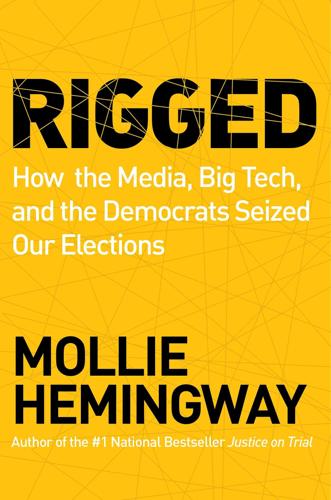
Rigged: How the Media, Big Tech, and the Democrats Seized Our Elections
by
Mollie Hemingway
Published 11 Oct 2021
While there are always activist groups on both the right and the left fighting over candidates and election rules, the battles over electioneering in the 2020 election were substantially different. It was as if the Dallas Cowboys were allowed to hire and train their own family members to serve as referees and then got angry the losing team didn’t publicly accept a narrow loss with several controversial calls. In 2020, liberal organizations, corporate interests, and a tech billionaire spent hundreds of millions of dollars getting access to the levers of government power in key states with the goal of ousting Donald Trump. This privatization of election administration tainted the entire election. There was no concern about this outrageous arrangement from the media and other watchdogs.

Evil Geniuses: The Unmaking of America: A Recent History
by
Kurt Andersen
Published 14 Sep 2020
Charles Murray proposed a full-on UBI fifteen years ago in a book published by the American Enterprise Institute, and now that “we are going to be carving out millions of white-collar jobs, because artificial intelligence, after years of being overhyped, has finally come of age,” he recently started pushing it hard once again. “Yes,” he wrote in The Wall Street Journal in 2016, “some people will idle away their lives under my UBI plan. The question isn’t whether a UBI will discourage work, but whether it will make the existing problem significantly worse.” The approval of people on the right, and of tech billionaires like Mark Zuckerberg and Elon Musk, does not make universal basic income a better idea, just a somewhat more politically plausible one. *1 During the panel discussion, Norm Pearlstine of Time Inc.—who now runs the freshly unionized Los Angeles Times—said he wasn’t too worried by the Internet: “I don’t think long-form journalism is much threatened,” he said

Fancy Bear Goes Phishing: The Dark History of the Information Age, in Five Extraordinary Hacks
by
Scott J. Shapiro
Microsoft can charge monopolistic prices, and engage in other anti- competitive practices, because it knows that most users are locked into its product. Frank and Cook argued that Winner Take All markets exacerbate inequalities. When only a few winners get the lion’s share, the rest fight over the scraps. It is worth noting that of the ten richest people in the world, six are tech billionaires, and two (Bill Gates and Larry Ellison) are founders of operating system companies (Microsoft and Oracle), with a combined wealth of $250 billion. Winner Take All markets for technology exhibit other pathologies. Because they tend to be sticky and non-ergodic, the technologies that win may not be the best-performing ones.
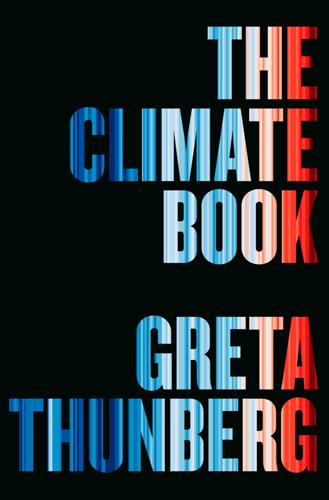
The Climate Book: The Facts and the Solutions
by
Greta Thunberg
Published 14 Feb 2023
The implications of vested interests mainstreaming the idea of geoengineering by discussing it as if it were a viable option may be as dangerous as the impacts of actually deploying geoengineering. Suggesting that geoengineering is a ‘plan B’ provides convenient excuses for the fossil fuel industry, tech billionaires and other promoters of these ideas to delay and derail the fundamental societal transformations that are urgently needed. Geoengineering is not an option. Intensified climate disruptions and injustices call for something very different: a focus on sufficiency and well-being, curbing emissions at the source and rapidly phasing out fossil fuel production, while prioritizing principles of equity, local livelihood and ecological integrity. / 4.9 Drawdown Technologies Rob Jackson The need for ‘drawdown’, defined here as removing carbon dioxide, methane and other greenhouse gases from the atmosphere after their release, arises from failure.
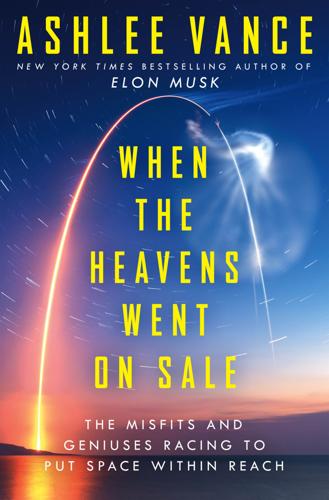
When the Heavens Went on Sale: The Misfits and Geniuses Racing to Put Space Within Reach
by
Ashlee Vance
Published 8 May 2023
Bezos had collected space artifacts such as cosmonaut suits, a model of the Star Trek Enterprise, and mailboxes that had been dinged by asteroids. Right in the center of the office stood a giant bullet-looking thing—a steampunk-styled spaceship that recalled Jules Verne. Bezos struck Markusic as smarter and kinder than the other tech billionaire types he’d met before, and Markusic agreed to take a job as a senior systems engineer. Things did not go well, though. Unlike the frenetic, hard-charging SpaceX, Blue Origin moved slowly. The company’s logo has a pair of turtles standing on their hind legs, reaching up toward the heavens and harkening back to the story of the tortoise and the hare.
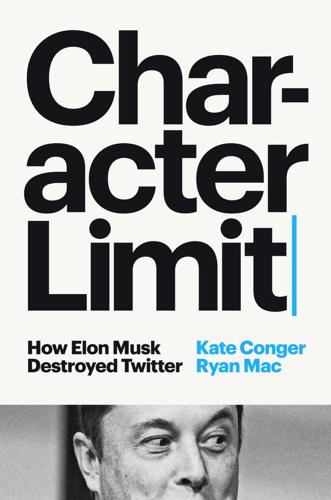
Character Limit: How Elon Musk Destroyed Twitter
by
Kate Conger
and
Ryan Mac
Published 17 Sep 2024
That he had enough money at his disposal was truly extraordinary, an aberrant feature of twenty-first-century capitalism. By the start of April 2022, Musk had a net worth nearing $270 billion. With the main source of his wealth, Tesla’s shares, reaching new heights and giving him unfathomable purchasing power, he set his sights on his one true passion. While most tech billionaires might have spent the money on mega yachts, sports teams, media publications, or faraway islands, Musk coveted a megaphone, a website where his voice could be broadcast directly to hundreds of millions of people. He wanted Twitter. Musk’s blitzkrieg takeover had no cultural or social precedent.
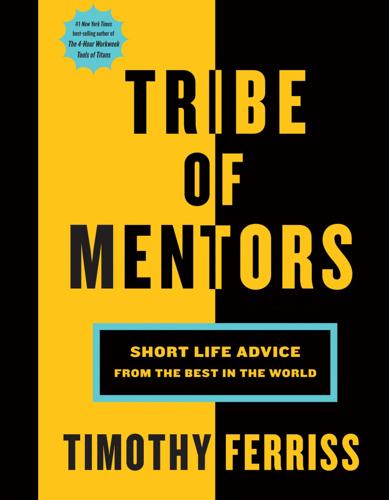
Tribe of Mentors: Short Life Advice From the Best in the World
by
Timothy Ferriss
Published 14 Jun 2017
He co-founded Bitcoin magazine in September 2011, and after two and a half years looking at what the existing blockchain technology and applications had to offer, wrote the Ethereum white paper in November 2013. He now leads Ethereum’s research team, working on future versions of the Ethereum protocol. In 2014, Vitalik was a recipient of the two-year Thiel Fellowship, tech billionaire Peter Thiel’s project that awards $100,000 to 20 promising innovators under 20 so they can pursue their inventions in lieu of a post-secondary institution. * * * In the last five years, what new belief, behavior, or habit has most improved your life? The largest one is probably understanding how to interpret things that other people are saying in situations where their goals do not fully align with yours.
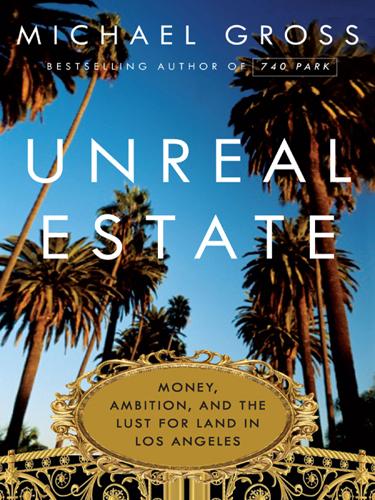
Unreal Estate: Money, Ambition, and the Lust for Land in Los Angeles
by
Michael Gross
Published 1 Nov 2011
Though there is a landed gentry in California, much like the colonial Society-with-a-capital-S of the East Coast, it no longer has the social power or financial leverage to capture the popular imagination—that resides instead with the Triangle’s founding fathers, who were descendants of fur trappers, Forty-niners, railroad builders, ranchers, and oilmen of the late nineteenth century, and the descendants, both familial and professional, of the Jewish movie moguls of the early twentieth century. They all made this a community of staggering wealth and set the standards of how it should be spent. Their contemporary equivalents are tech billionaires, rock musicians, financial manipulators, and pyramid scheme operators. Born out of the alchemical reaction of overlapping booms in oil, railroads, and land in the early twentieth century, the Triangle was conceived for the Los Angeles elite, but it wasn’t until the relative arrivistes of Hollywood started buying land and building great estates in the 1920s that its fortunes were assured and vast farms and ranches turned into luxury residences.
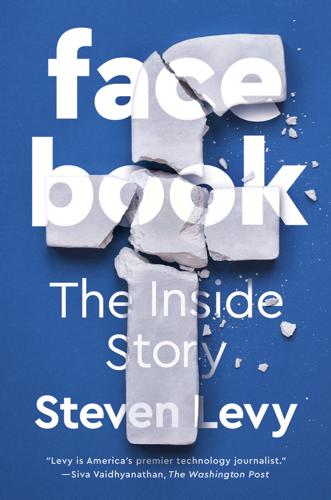
Facebook: The Inside Story
by
Steven Levy
Published 25 Feb 2020
When those images hit the net, that two-block stroll among the people will make Zuckerberg a beloved figure in Nigeria. (“I thought it must be photoshopped!” said a local engineer when he first encountered it.) The next day, a run across a bridge, similarly documented on social media, will cement the image of this tech billionaire as a man of the people. The last stop of his first day in Africa is a tiny storefront at a busy intersection. It is one of a number of “Express Wi-Fi” mom-and-pop franchises Facebook has helped fund, where locals beam Internet from shops and businesses for small fees. This particular stand, which also takes sports bets, is run by Rosemary Njoku, a woman in a black spotted dress and head scarf.
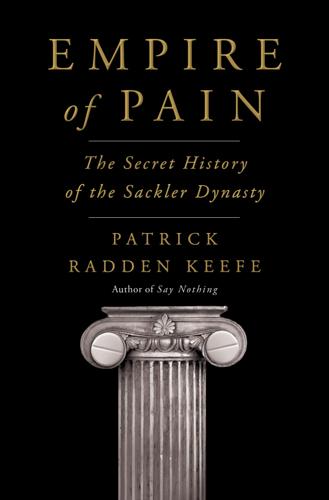
Empire of Pain: The Secret History of the Sackler Dynasty
by
Patrick Radden Keefe
Published 12 Apr 2021
Instead, they had opted to double down, positioning Purdue as an “integrated pain management company.” Richard Sackler had drifted apart from his wife, Beth, over the years. They would ultimately divorce in 2013, and Richard moved to Austin, Texas, where he bought a modern hilltop mansion on the outskirts of the city, in an area favored by tech billionaires. But he was still prone to meddling, fanatically, in the most minute operational details of his company. Pining, perhaps, for the glory days of the Blizzard of ’96, when he oversaw the gangbusters launch of the original OxyContin, Richard now scrutinized every particular of the rollout of Butrans.
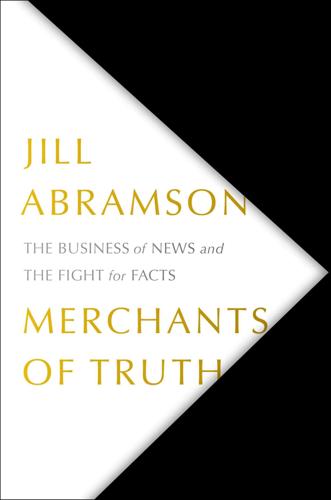
Merchants of Truth: The Business of News and the Fight for Facts
by
Jill Abramson
Published 5 Feb 2019
Absent from the crowd of luminaries was the Washington Post’s Donald Graham, the self-effacing, beloved company chairman who had executed a changing of the guard three years before. Despairing that the paper’s quality couldn’t survive deep staff cuts and vanishing advertising revenue, he sold the newspaper his family had owned since 1933 to a tech billionaire, Amazon’s Jeff Bezos. The Post’s sleek new offices were no longer festooned with the famous front page “Nixon Resigns” from Watergate days. They were dominated by flat-screens displaying real-time traffic statistics on how many readers were looking at each story. Prominent was a Bezos mantra, in blue and white: “What’s dangerous is not to evolve.”
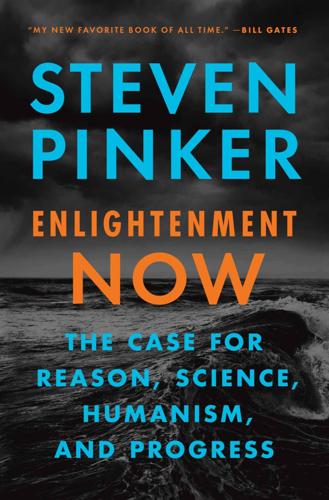
Enlightenment Now: The Case for Reason, Science, Humanism, and Progress
by
Steven Pinker
Published 13 Feb 2018
The team that brings clean and abundant energy to the world will benefit humanity more than all of history’s saints, heroes, prophets, martyrs, and laureates combined. Breakthroughs in energy may come from startups founded by idealistic inventors, from the skunk works of energy companies, or from the vanity projects of tech billionaires, especially if they have a diversified portfolio of safe bets and crazy moonshots.93 But research and development will also need a boost from governments, because these global public goods are too great a risk with too little reward for private companies. Governments must play a role because, as Brand points out, “infrastructure is one of the things we hire governments to handle, especially energy infrastructure, which requires no end of legislation, bonds, rights of way, regulations, subsidies, research, and public-private contracts with detailed oversight.”94 This includes a regulatory environment that is suited to 21st-century challenges rather than to 1970s-era technophobia and nuclear dread.
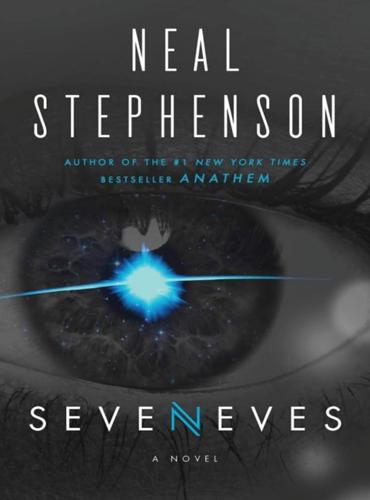
Seveneves
by
Neal Stephenson
Published 19 May 2015
But, by the same token, they were also relatively easy to reach and latch on to. For both those reasons, bad and good, they drew the attention of astronomers. Amalthea had been noticed five years earlier by a swarm of telescope-wielding satellites sent out by Arjuna Expeditions, a Seattle-based company funded by tech billionaires for the express purpose of asteroid mining. It had been identified as dangerous, with a 0.01 percent probability of striking the Earth within the next hundred years, and so another swarm of satellites had been sent up to drop a bag over it and drag it into a geocentric (Earth- rather than sun-centered) orbit, which had then been gradually matched with that of the ISS.